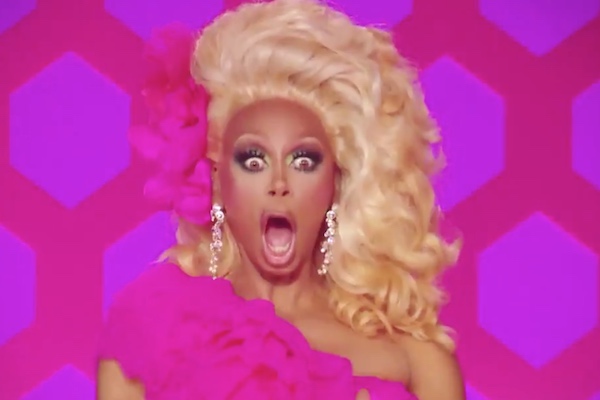a&e features
Margaret Cho Returns to Music with ‘Lucky Gift’
In her first music release in 8 years, Margaret Cho is back with a new album…and a lot to say!
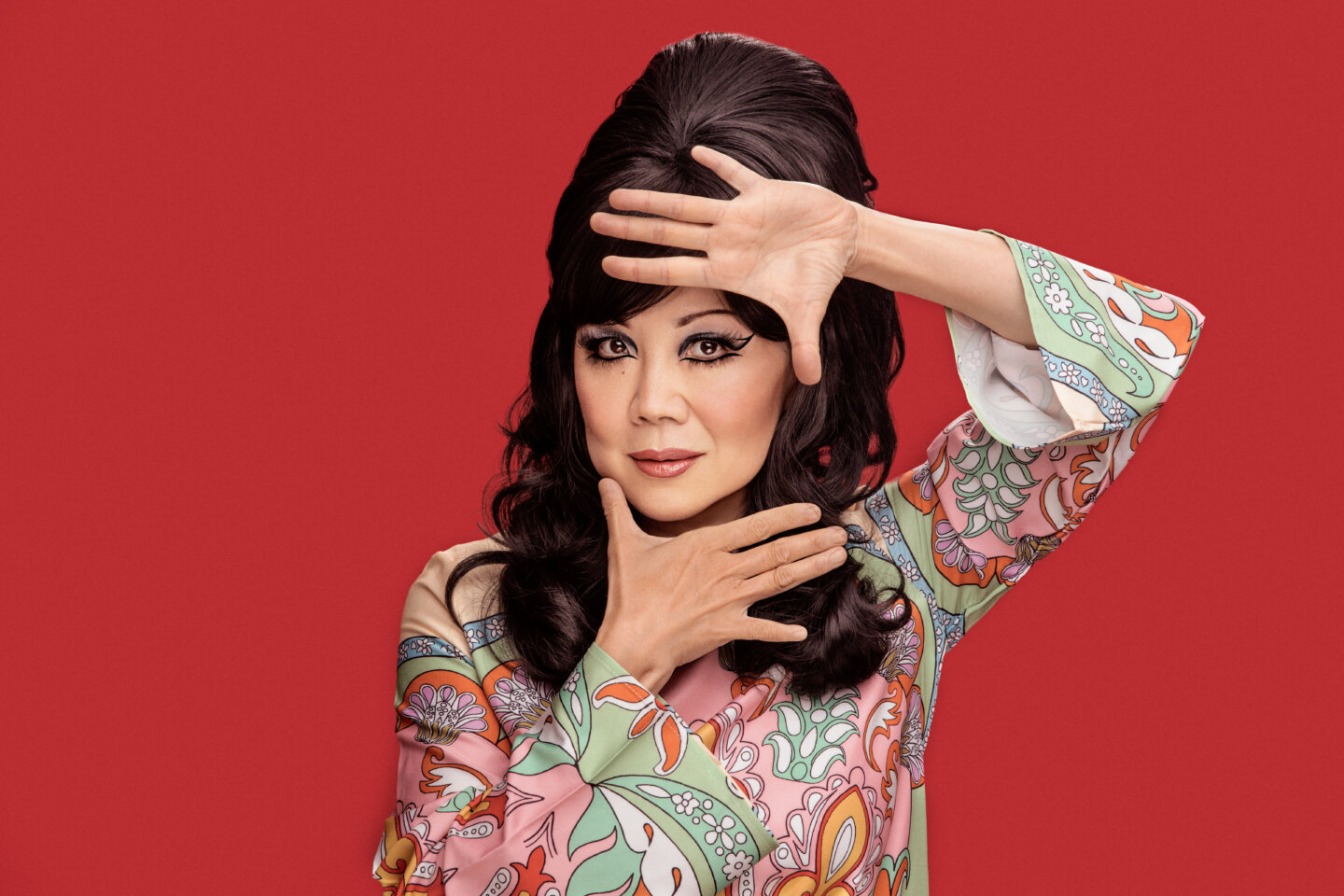
It has been 8 years since Margaret Cho released her Grammy-nominated American Myth album. She’s back to the music scene with her new album, Lucky Gift, an 11-track collection of anthems and pop tunes, a tribute to Robin Williams, and a shout-out to non-binary and gender non-conforming people.
The album captures the whirlwind that is Margaret and all of the different facets of her talents that have made her a powerhouse in entertainment and a leader in activism. In Lucky Gift, she’s getting her point across while having fun and getting glam.
We caught up with the activist and artist to chat about her music, our political climate, and
Known for her comedy, acting and activism, she felt it was long overdue to get her music back out there too.
Cho shares some insight on her next moves:
“I make music often. It’s a part of my daily life, it’s a big part of my social life, and it’s just something that I just love to do for my own relaxation and fun. I had enough for an album and I wanted to finally put them out. I was just really proud of how it all sounded together,” shares Cho.
“It’s a power pop record. For me, the songs are really meaningful. They’re all in their own way love songs. I’m a big fan of my own music (laughs), I really like the way that I sound and it’s really special to do. People know me as a comedian, and I have also made music for a long time, but it’s sort of a side project, and so it was time to put more out again.”
Her album also includes a touching tribute to Robin Williams. The entertainment community is finally more comfortable talking about mental health more openly. When relating mental health to her own life, Margaret, in true Margaret form, quickly turned the conversation to reflect today’s political climate.
“I have to maintain a level of peace and quiet and sometimes maybe get away from the news, although that’s tough because I am obsessed. I want to know what is happening. I’m really worried for our community, especially the trans community. I’m worried that this Administration is trying to separate T and the Q from the LGBTQIA, and it’s really frightening.”
As an elder, Cho says she has to also remember that we’ve been through this before and it’s actually been much worse. The LGBTQ+ community has been through a similar situation and at that point we were facing down a pandemic which was killing the community by the millions. Now, Cho says at least we don’t have to fight AIDS, as well as this onslaught of homophobia.
“We have fought for our rights, and we still have them, but we may not have them for long. So our mental health is very important to preserve now because we have to fight. The one thing to remember is they can’t do everything at once. They can’t take away trans rights, queer rights, gay rights, gay marriage, antidepressants (ha!) at the same time. So what we can do is just try to remain as calm as possible and fight as strongly as we can. But yeah, mental health is really vitally important right now.”
Cho’s long history of queer activism stands for itself. She does not shy away from current issues, she uses her platforms to incite, educate, and question. For Margaret, there is no time off from being an activist. She was born into it, so to speak, being raised in San Francisco in the 1970s, her parents the owners of a gay bookstore and their employees, followers of Harvey Milk.
“My activism is that I don’t have a choice. I’m going to be an activist no matter what. We’re doing this together, we’re going through this together. I will always be political. It’s just disheartening to see the ignorance of people and the lies that are being told that are believed.”
Lucky Gift comes at a perfect time when the queer community can come together over music. Cho looks at her album as a tool to empower an underdog community through the power of music.
“It’s the triumph of pop above all. We need to look to our pop divas above all. So now I’m more than ever, leaning on Madonna. Thank God for [Lady Gaga’s] “Abracadabra” because I think that things like that boost our community so much. When you can just get together and have a “brat summer,” that boosts our community so much in this togetherness, this explosion of excitement. I think Chappell Roan really ignited the pop capacity for healing. I love Lucky Gift because it is my stepping into a pop diva moment. Pop Divas should not be discounted for how important they are to our society and how much they lift us up.”
In addition to releasing her new album, Margaret will continue to hit the road this year with her Live and LIVID! Tour, celebrating over four decades of live stand-up shows. On this tour, she promises to rage about homophobia, sexism, racism, and the fight to stay alive. The five-time Grammy and Emmy-nominated performer is not holding back. According to her, the nation is not divided, just a little lost.
“We’re not divided. Everybody hates this. We all hate this. The fact is, the majority of the country does not want this. Unfortunately, a lot of people just didn’t vote because they just didn’t want to participate. That’s why we’re in the situation that we’re in. So to be on the road is a pleasure. And I rarely come against opposition. Every once in a while there’s something, but it’s something that we all handle. I think we all need a voice, a strong voice of reason to combat all of the hysteria.”
And her message to her fans?
“We’ll get through this. We’ll get through this with Pop Divas. “Abracadabra,” learn the choreography, you do it sitting down. At least we have pop music, I have my hat in the ring here. But at least we have each other and we’re going to be okay. It’s going to be a ride, it’s going to be intense, but we can do this. We’ve been through this before and we are going to be fine.”
Lucky Gift is now available on all major streaming platforms
a&e features
Angel McCoughtry, “Renaissance Woman”
Angel McCoughtry is a professional athlete. A two-time gold medalist, 5-time WNBA all-star, philanthropist, and now filmmaker.

“Renaissance Woman” is a term fit for a queen. Heavy is the head that wears the crown, but we’re in luck because Angel McCoughtry is a professional athlete. A two-time gold medalist, 5-time WNBA all-star, philanthropist, and now filmmaker, Angel has built career(s) defined by reinvention and an insistence on excellence at every turn.
Her move to take charge behind the camera comes at a time that feels anything but divine. In a time where stories like Heated Rivalry bring the heat (pun intended) one moment, while nearly half of all queer characters and stories are vanishing from TV the next, McCoughtry’s leadership behind the camera signals something hopeful: A refusal to let anyone or any story get left behind.
A WNBA legend, McCoughtry played ten years without pause, splitting her time between the W and overseas leagues. In college, she led the Big East Conference in scoring, rebounds, and steals, obliterating records, even the ones she herself set. The number one draft pick and Rookie of the year in ‘09, McCoughtry quickly became one of the best players the W has ever seen. Though she never officially retired, Angel hasn’t played in the W since 2022, when she was sidelined for an injury that she has since healed. (Ya hear that WNBA? Our girl is ready to come back!)
Being forced to step away from the game brought about a reckoning that is all too familiar to elite athletes everywhere: “Who are you when your body won’t let you perform?” Through detangling this identity crisis, McCoughtry found a new appreciation for storytelling, the stories we tell ourselves as well as the stories we tell the world. Angel’s innovative storytelling and directing style are inspired by basketball, as she likens herself to the Dawn Staley of film, adding, “When you allow your players to be free, they can play at their highest level, and that’s what I allow my actors to do.”
Inspired by her grandmother’s stories of playing ball in a time when women were not allowed to cross half court and had to wear skirts, Angel wants to empower resilient perspectives. “I can’t keep their stories hidden,” She says, “The women who paved the way.” Laser focused on bringing scripted sports films to the mainstream, McCoughtry says, “I’m looking for stories that resonate with the people, and I want to be the one to bridge the gap and bring women’s sports scripted content to the forefront.”
Through McCoughtry Entertainment, Angel wants to bring women’s sports to the forefront as well as genre-driven films, particularly sports-thrillers led by women. Her short film Bygones is now available to stream on Prime Video, with more projects in the barrel. Her feature-length directorial debut, Bolted, is on deck as her next project. I personally would love to see the gay women’s version of Heated Rivalry in McCoughtry’s hands, who says, “There’s a realness to it,” about the show, “That happens often, and it’s not talked about [..] that’s all over women’s sports.”
“I am obsessed with stories about overcoming adversity,” says McCoughtry, an apt throughline in Angel’s work that reflects the spirit of creativity and athleticism.
a&e features
Alexander Skarsgård describes ‘Pillion’ in 3 words: lube, sweat, leather
Highly anticipated film a refreshingly loving look at Dom-sub life
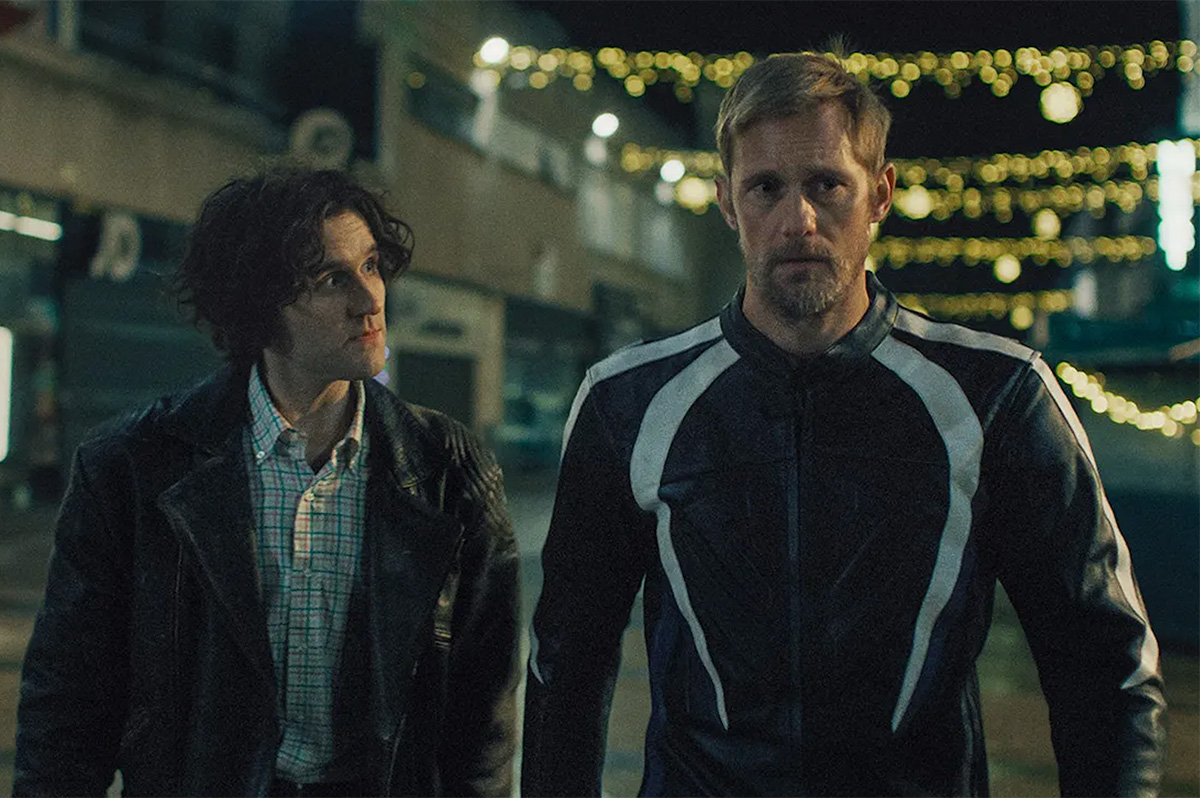
Whether you’ve seen him in popular HBO series like “True Blood,” “Succession,” and “Big Little Lies,” the dynamic Swedish actor Alexander Skarsgård has that smoldering gaze that immediately draws viewers in.
Following in the footsteps of his father Stellan, (who just won the Golden Globe for “Sentimental Value”) the Golden Globe, Emmy, and SAG winner Skarsgård continues to be an actor who is fearless in the roles he takes on.
That courageousness is evident in Skarsgård’s latest film, the BDSM black comedy “Pillion,”which he also executive produces. He plays Ray, the handsome, hyper-dominant leader of a gay bike gang. The film was written and directed by Harry Lighton, and is based on the 2020 novel “Box Hill,” by Adam Mars-Jones.
“This was a small film by a first time filmmaker and it wasn’t financed when I read it,” Skarsgård told journalists at a recent awards news conference. “And I felt that, if I could help in any small way of getting it financed, I wanted to, because I thought it was such an incredible screenplay and I believe in Harry Lighton so much as a filmmaker. And it felt tonally unlike anything I’d ever read. It was such an exciting, surprising read.”
Skarsgård was blown away by the quality of the unconventional script. “When I heard BDSM relationship, biker culture, I expected something very different. I didn’t expect it to have so much sweetness and tenderness and awkwardness.”
For the sex scenes and nudity with co-star, Harry Melling — who excels in his portrayal as Ray’s submissive Colin — Skarsgård talked very early on with Lighton about how he wanted to shoot those scenes, and why they were in the film.
“I often find sex scenes quite boring in movies because a lot of the tension is in the drama leading up to two people hooking up, or several people hooking up, as in our movie. But what I really enjoyed about these scenes — they are all pivotal moments in Colin’s journey and his development. It’s the first time he gets a blowjob. It’s the first time he has sex. It’s the first time he has an orgasm. And these are pivotal moments for him, so they mean a lot. And that made those scenes impactful and important.”
Skarsgård was happy that Lighton’s script didn’t have gratuitous scenes that shock for the sake of just shocking. “I really appreciated that because I find that when this subculture is portrayed, it’s often dangerous and crazy and wild and something like transgressive.”
He continued: “I really love that Harry wanted it to feel real. It can be sexy and intense, but also quite loving and sweet. And you can have an orgy in the woods, rub up against a Sunday roast with the family. And that kind of feels real.”
One of the obstacles Skarsgård had to work with was Ray’s emotionally distant personality.
“Ray is so enigmatic throughout the film and you obviously never find out anything about him, his past. He doesn’t reveal much. He doesn’t expose himself. And that was a challenge to try to make the character interesting, because that could easily feel quite flat…That was something that I thought quite a lot about in pre production…there are no big dramatic shifts in his arc.”
For the film, Lighton consulted the GMBCC, the UK’s largest LGBT+ biker club, attending their annual meetup at which 80 riders were present.
“Working with these guys was extraordinary and it brought so much texture and richness to the film to have them present,” said Skarsgård. “They were incredibly sweet and guiding with us — I can’t imagine making this movie without them. I’d go on a road trip with them anytime.”
Added Skarsgård: “To sum up ‘Pillion’ in three words: lube, sweat, and leather. I hope people will connect with Colin and his journey, and come to understand the nuance and complexity of his bond with Ray.”
This year is shaping up to be a busy one for Skarsgård. “Pillion” premieres in select cities on Feb. 6 and then moves into wide release on Feb. 20. After that for Skarsgård is a role in queer ally Charli XCX’s mockumentary, “The Moment,” which premieres at the Sundance Film Festival. HIs sci-fi comedy series, Apple TV’s “Murderbot,” which he also executive produces, will begin filming its second season. And this weekend, he hosts “Saturday Night Live.”
a&e features
“I just kept showing up”: Broadway veteran Marc Shaiman reflects on musical success stories
In his new memoir, Marc Shaiman reflects on his dream job composing music for ‘Mary Poppins Returns’ and the “nightmare” experience that was working on the show ‘Smash’
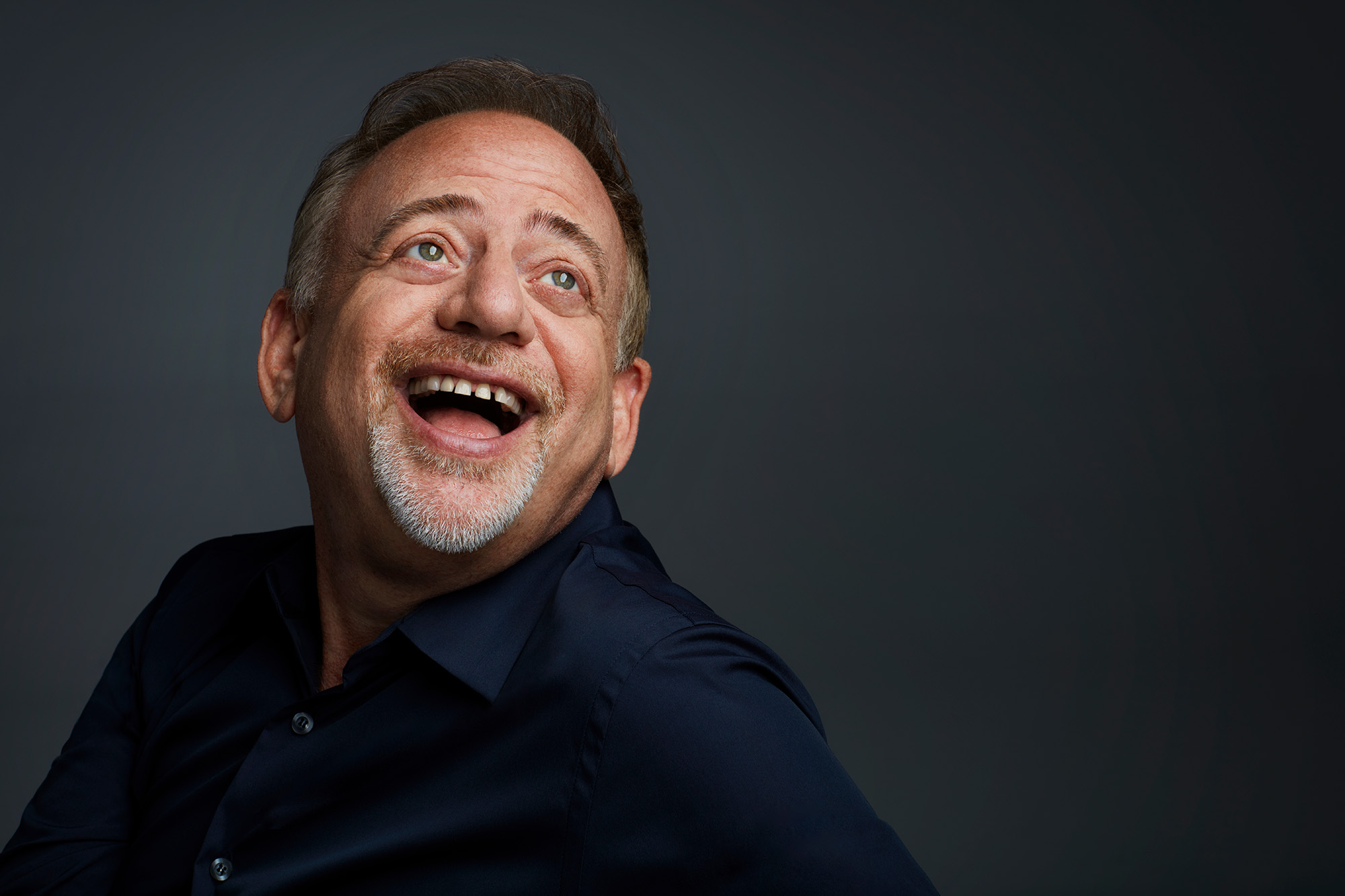
If you haven’t heard the name Marc Shaiman, you’ve most likely heard his music or lyrics in one of your favorite Broadway shows or movies released in the past 50 years. From composing the Broadway scores for Hairspray and Catch Me if You Can to most recently working on Only Murders in the Building, Hocus Focus 2, and Mary Poppins Returns, the openly queer artist has had a versatile career — one that keeps him just an Oscar away from EGOT status.
The one thing the award-winning composer, lyricist, and writer credits with launching his successful career? Showing up, time and time again. Eventually, he lucked out in finding himself at the right place at the right time, meeting industry figures like Rob Reiner, Billy Crystal, and Bette Midler, who were immediately impressed with his musical instincts on the piano.
“Put my picture under the dictionary definition for being in the right place at the right time,” Shaiman says. “What I often try to say to students is, ‘Show up. Say yes to everything.’ Because you never know who is in the back of the theater that you had no idea was going to be there. Or even when you audition and don’t get the part. My book is an endless example of dreams coming true, and a lot of these came true just because I showed up. I raised my hand. I had the chutzpah!”
Recalling one example from his memoir, titled Never Mind the Happy: Showbiz Stories from a Sore Winner ( just hit bookshelves on January 27th), Shaiman says he heard Midler was only hiring Los Angeles-based artists for her world tour. At the young age of 20, the New York-based Shaiman took a chance and bought the cheapest flight he could find from JFK. Once landing in L.A., he called up Midler and simply asked: “Where’s rehearsal?”
“Would I do that nowadays? I don’t know,” Shaiman admits. “But when you’re young and you’re fearless … I was just obsessed, I guess you could say. Maybe I was a stalker! Luckily, I was a stalker who had the goods to be able to co-create with her and live up to my wanting to be around.”
On the occasion of Never Mind the Happy’s official release, The Blade had the opportunity to chat with Shaiman about his decades-spanning career. He recalls the sexual freedom of his community theater days, the first time he heard someone gleefully yell profanities during a late screening of The Rocky Horror Picture Show, and why the late Rob Reiner was instrumental to both his career and his lasting marriage to Louis Mirabal. This interview has been edited and condensed.
Naturally, a good place to start would be your book, Never Mind the Happy. What prompted you to want to tell the story of your life at this point in your career?
I had a couple of years where, if there was an anniversary of a movie or a Broadway show I co- created, I’d write about it online. People were always saying to me, “Oh my God, you should write a book!” But I see them say that to everybody. Someone says, “Oh, today my kitten knocked over the tea kettle -” “You should write a book with these hysterical stories.” So I just took it with a grain of salt when people would say that to me. But then I was listening to Julia Louis-Dreyfus’ podcast, and Jane Fonda was on talking about her memoir — not that I’m comparing myself to a career like Jane Fonda’s — but she felt it was time to take a life review. That really stuck in my head. At the time, I was sulking or moping about something that had not gone as well as I wished. And I guess I kind of thought, “Let me look back at all these things that I have done.” Because I have done a lot. I’m just weeks short of my 50th year in show business, despite how youthful I look! I just sat down and started writing before anyone asked, as far as an actual publisher.
I started writing as a way to try to remind myself of the joyous, wonderful things that have happened, and for me not to always be so caught up on what didn’t go right. I’ve been telling some of these stories over the years, and it was really fun to sit down and not just be at a dinner party telling a story. There’s something about the written word and really figuring out the best way to tell the story and how to get across a certain person’s voice. I really enjoyed the writing. It was the editing that was the hard part!
You recall experiences that made you fall in love with the world of theater and music, from the days you would skip class to go see a show or work in regional productions. What was it like returning to those early memories?
Wonderful. My few years of doing community theater included productions that were all kids, and many productions with adults, where I was this freaky little 12-year-old who could play show business piano beyond my years. It was just bizarre! Every time a director would introduce me to another cast of adults, they’d be like, “Are you kidding?” I’d go to the piano, and I would sightread the overture to Funny Girl, and everybody said, “Oh, OK!” Those were just joyous, wonderful years, making the kind of friends that are literally still my friends. You’re discovering musical theatre, you’re discovering new friends who have the same likes and dreams, and discovering sex. Oh my god! I lost my virginity at the opening night of Jesus Christ Superstar, so I’m all for community theater!
What do you recall from your early experiences watching Broadway shows? Did that open everything up for you?
I don’t remember seeing Fiddler on the Roof when I was a kid, but I remember being really enthralled with this one woman’s picture in the souvenir folio — the smile on her face as she’s looking up in the pictures or looking to her father for approval. I always remember zooming in on her and being fascinated by this woman’s face: turns out it was Bette Midler. So my love for Bette Midler began even before I heard her solo records.
Pippin and The Wiz were the first Broadway musicals I saw as a young teenager who had started working in community theater and really wanted to be a part of it. I still remember Pippin with Ben Vereen and all those hands. At the time, I thought getting a seat in the front row was really cool — I’ve learned since that it only hurts your neck, but I remember sitting in the front row at The Wiz as Stephanie Mills sang Home. Oh my god, I can still see it right now. And then I saw Bette Midler in concert, finally, after idolizing her and being a crazed fan who did nothing but listen to her records, dreaming that someday I’d get to play for her. And it all came true even before I turned 18 years old. I just happened to be in the right place at the right time, and met one of her backup singers and became their musical director. I was brought to a Bette Midler rehearsal. I still hadn’t even turned 18, she heard me play and said, “Stick around.” And I’ve stuck around close to 55 years! She’s going to interview me in L.A. at the Academy Museum. Would I have ever thought that Bette Midler would say yes to sitting with me, interviewing me about my life and career?
That’s amazing. Has she had a chance to read the book yet?
She read it. We just talked yesterday, and she wants to ask the right questions at the event. And she even said to me, “Marc, I wasn’t even aware of all that you’ve done.” We’ve been great friends for all these years, but sometimes months or almost years go by where you’re not completely in touch.
In the book, you describe moving between New York and Los Angeles, especially when you started working more in film. As a queer artist, what was your experience finding LGBTQ+ community between the two coasts?
As far as gayness, they’re equally gay! I guess New York tilts a little more. I came to New York in 1976, so during the ‘70s in New York, anything goes! That was the height of sexual freedom and expression, then the ‘80s brought the hideousness of AIDS. For a long time, part of being gay was the endless death that I was surrounded by — losing just about every friend and colleague. My god, when I first started living in L.A., coming out there to work with Bette in the ‘80s, almost every single person I met died by the mid ‘90s. Everyone, everyone was gone. That was unfortunately a huge part of my life, and anyone my age can relate to that. God bless everyone not my age that will hopefully never ever have to experience anything close to the devastation of a funeral every week. Even to say it now, it’s hard to imagine or believe that happened.
But you know, I’m in show business, so there are gay people everywhere and happily so. I’m lucky that I grew up without any kind of shame about that, or a feeling that I needed to hide it. Although I didn’t come out to my parents. It wasn’t until I finally told my mom one day that I had been to yet another funeral, as I was sharing with her about AIDS. That was when she finally said, “Scott is more than your roommate, isn’t he?” And I was like, “Yes.” Why did I pretend? I never pretended anywhere else, and I never pretended about anything else. But I still grew up in a time when – well, I mean, I’m not naive, I know it’s still a time now where a lot of people can’t come out to their family or parents — but I certainly came out a time long before there were people coming out on TikTok for the whole world to see. It was a bit more of a private thing, but I was always happily gay. And dare I say, as I even say in the book, when my libido took off at around 15, and all the other 15 and 16-year-olds were around me, I was the pied piper!
In the spirit of being at the right place at the right time, you almost accidentally became part of The Rocky Horror Show and the immersive, theatrical performances that emerged in those midnight screenings.
We actually started that, which, once again, is hard for me to believe. I went to New York with my friend from community theater, Sal, and we walked by the Waverly Theatre. He said, “Oh, I heard that this movie just opened, I hear it’s really outrageous.” We got in line and really hit it off with these other guys and gals. We went to see it and loved it and said, “Let’s come back tomorrow night!” These strangers that we just met came back too. When Susan Sarandon (who played Janet) holds a newspaper over her head in the rain, Louis Farese is the first person to yell out anything. He yelled, “Buy an umbrella, you cheap bitch!” The audience exploded in laughter. Sal and I were big hams and were like, “We’ve gotta get a laugh. We’ve got to figure out something to say and get a laugh like this!”
You started working in film through your collaborations with director Rob Reiner, who recently passed. What was it like stepping into scoring and making that leap with films like Misery and When Harry Met Sally…?
I was lucky enough, by Billy Crystal introducing me to Rob Reiner, to get the job doing the music for When Harry Met Sally…. But that was arranging existing songs, arranging and orchestrating with Rob. I worked on Beaches (starring Bette Midler) at the same time, and that was the same thing — arranging songs, orchestrating them, co-producing the recordings. Suddenly, I had these two hugely successful soundtrack records I had co-produced, but I had never written a film score or done a student film. Since I was a kid, I had a little theme for when my cat walked across the room. If somebody walked into the room at a party, I would play something funny as they walked in.
Rob had an inkling and called me, “Hey buddy, you want to score my next movie, Misery, a psychological thriller?” I was wondering why he thought I could do that. I had just gotten an agent as I moved to L.A., and even my agent said to Rob, “What makes you think Marc can write a film score?” Rob simply said, “Talent is talent.” That became my agent’s mantra as he got me one job after another, and Rob’s faith in me was just an overwhelming, life-changing thing. He became so important to me, and someone I’ll be thankful for as a colleague and even more so as a friend. For the rest of my life, I’ll be thanking him for that.
He was a true advocate for the LGBTQ+ community, fighting against California’s Proposition 8 same-sex marriage ban by co-founding the American Foundation for Equal Rights in 2009.
Very likely, I wouldn’t be married if it weren’t for Rob and Michelle Reiner. They were intensely a part of the fight to get to the Supreme Court. They were a part of that in all ways — financially, fighting, and showing up vocally. So, besides everything else, I’m the most happily married man on the face of the earth. And I can thank Rob and Michelle for that.
That’s beautiful. As we look back on your career, you’ve worked on everything from Broadway musicals like Hairspray to more recent revivals/sequels like Mary Poppins Returns, which you describe in your book as your dream job. What do you make of how the landscape for these filmed musical adaptations has evolved? It seems like studios are now more apprehensive about promoting them as actual musicals.
Isn’t it crazy? Even after Wicked making billions of dollars, I bet with the next movie musical, they’ll still pretend like it’s not a musical. Even Wicked had commercials where they didn’t sing! It’s so schizophrenic. There’s clearly an audience for them and yet the studios are so afraid. I don’t know. Can you explain it?
I don’t know if I can.
I mean, Mamma Mia! Hairspray the movie was very successful, but did they show singing for the commercials for Hairspray? I don’t remember, but I don’t think they did.
In the book, you mention Cole Escola and other queer artists who are doing exciting things today. Are there any particular actors or recent films and shows that you’ve been impressed by?
Well, god knows Heated Rivalry. My god, what’s going on with that? It’s just so fantastic watching these videos of the straight podcasters crying at episode five. Of course, I watched it for the sexiness of it all, but then I got caught up in it. I cried my fucking eyes out at that episode when he calls his lover down to the rink. I was just like those guys watching those reaction videos.
It shows how schizophrenic this world is. There are so many mean people full of hatred, yet there are also many people full of love who are open to a show like that. It’s phenomenal. I don’t know what’s going to become of this world, but I’m happy I got to live the life I’ve gotten to live. I hope we’re not entering a world where our worst fears are all coming true. This may sound superficial, but even something like Heated Rivalry — I don’t think that’s superficial. It shows there are large numbers of people who get it.
How do you feel as you’re getting ready to share this book and your stories with the world?
It’s not just about me tooting my own horn, though I’d be a hypocrite to say that I’m not to a certain level. It’s also about showing people — if you want to do something, just go out and fucking do it. Just keep at it. I wanted to quit a million times but I didn’t, and just like people told me, something did happen because I just kept showing up.
Never Mind the Happy: Showbiz Stories from a Sore Winner is now available wherever books are sold
a&e features
Everyone should be a little more like Van Goth
The winner of Canada’s Drag Race season 6 breaks down her historic win and why you should embrace the shade.
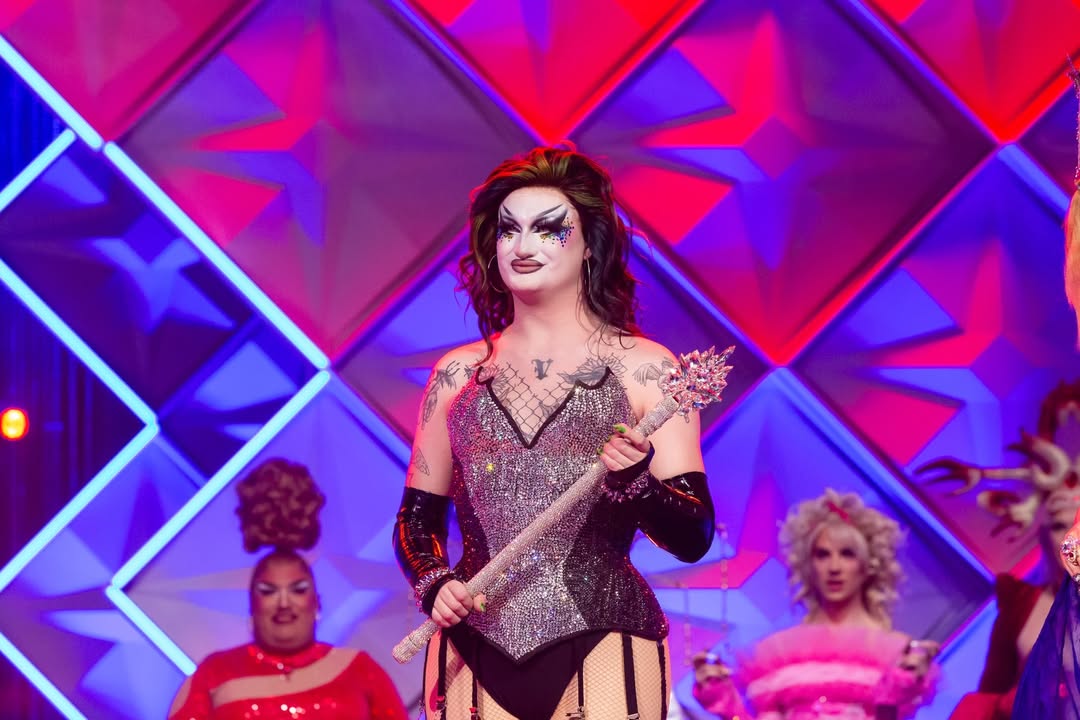
Canada’s Drag Race fans rejoice: a new Queen of the North has officially been inducted into the hall of fame! After one of its wildest seasons ever, RuPaul’s Drag Race’s Canadian spinoff has officially named Van Goth, Toronto’s resident punk rock princess, as ‘Canada’s Next Drag Superstar’.
While every winner has a unique path to the crown, Van’s was a tad more chaotic than most. The performer not only made history by winning four challenges — more than anyone else in the show’s history — but was called out multiple times for alleged backstabbing and shady behavior. Yet despite these call-outs, this Queen soldiered on, using every moment onscreen to say exactly what she was thinking and eventually fight her way to the series’ $100,000 grand prize.
Canada’s newest winner spoke with the Los Angeles Blade about what it means to win one of television’s biggest awards today. Digging into her many iconic moments on the show, Van Goth spoke about how proud she was to showcase her art and why she doesn’t regret any of her ‘shady’ moments — and why queer artists everywhere could benefit from being a little more shady themselves!
“Going onto RuPaul’s Drag Race, you need a goal to hold onto,” said Van Goth, when discussing the mindset that got her to Canada’s Drag Race finale. “Winning is a bad goal — because most people lose Drag Race. That’s just the tea! My goal was that when I left [the show], you could not think about season six or the best to ever do it without [thinking of] me. And I accomplished that even before I got the crown.” It would be hard for anyone to disagree; Goth instantly caught viewers’ attention with the punk style she brought to the show’s mainstage. A mixture of riot aesthetics and classic elegance — her name is an homage to Van Gogh, after all — every turn on the runway brought a new, jaw-dropping look for viewers to fall in love with. And not only were the outfits immaculate to look at, but many held a purpose, with Van using some of her outfits and performances to bring attention to those living with HIV (she herself is undetectable).
Her advocacy and outfits were enough to grab viewers’ attention, but those weren’t the only reasons fans quickly grew intrigued by Van Goth. When she wasn’t securing wins and turning looks, the performer just couldn’t seem to stop causing drama behind the scenes.
“I didn’t make the rules for the competition. They were laid out for me, and I used them,” clarified Goth, when discussing how she’s been labelled a ‘backstabber.’ The moniker comes from the prevalence of alliances that appeared on this season, with Van breaking a majority of the ones she was a part of. With Canada’s Drag Race featuring a unique rule that allows winning queens to save bottom queens from elimination (the illustrious ‘golden beaver’), Goth had promised multiple people that, if given the chance, she’d spare them from elimination. But despite these promises, Van always knew she’d only make decisions that helped her get to the win.
“I came from a competitive sports background — I played rugby for 12 years!” She explained. “So, it was easy to tap back into that [cutthroat] mindset for this competition.” A cutthroat mindset that earned her ire from many other queens, with Sam Star publicly calling out Van Goth and claiming it was because of her betrayal that her Drag Race dreams were ruined. Goth assured that she has a great relationship now with Star and every other queen on this installment. But when asked whether she regrets any of these choices, the winner clarified, “Something that I love about my run on the show was that I was really honest, but I also was really firm in my position.”
“If someone came at me and said something that I didn’t agree with, I pushed back on it. And I really hope that artists around the world see that and know that they have a voice and it’s powerful, and they can use it.” Van Goth encourages people to see the deeper meanings of the ‘dramatic’ scenes she had on the show, to recognize them as moments where a queer person refused to stay silent and always went after what was best for them. She continued, “[If you] don’t agree with something, [you] should speak out and stand up for it! There’s so much power in what you say…[and] I feel like moving forward as queer artists, especially in this day and age, we have to really stand up for our own and what we do, and push back against the world. And still find a way to create art that gives people hope and entertainment during these dark times.”
As the interview came to an end, Van Goth shared what she hoped people learned from her time on the season. It’s easy (and admittedly enjoyable) to focus on her drama, but the performer’s mission as reigning Queen of the North is to inspire others to act as defiantly confident as she is. “I [plan to] travel, continuing to lift up local communities and continue to give people hope. To inspire artists to live their dreams, and really go for it.”
Van appears content with the knowledge that some people may not care about this goal. That many avid fans will instead focus on her alleged slights, on how she apparently ruined their favorite competitor’s chance at the crown. In regard to that point, especially, Van had one thing to say.
“They should try harder next time…and then, maybe, they would win.”
a&e features
Writing her own story arc: Stuntwoman Ellie Haigh takes on Hollywood
A candid conversation with stuntwoman Ellie Haigh on training arcs, chosen family, and what it means to take up space as a trans woman in Hollywood

If you take a peek back at stuntwoman Ellie Haigh’s pre-career upbringing, you will find a kid geeking out to Power Rangers with an overwhelming sense of possibility. Far before she was doubling actors or choreographing fights, Haigh was already building her training arc through gymnastics, parkour, martial arts, and determination. What started as a childhood appreciation for Ninja Turtles steadily evolved into a career founded on movement with intention.
Moving to Los Angeles in September 2020 (arguably the worst possible moment to set sails for the Hollywood dream), Haigh entered the stunt world with no map, no safety net. As one of – and quite possibly the only – openly trans women working in stunts, Haigh navigated an industry that is both physically exhausting and slow to change. Instead of shrinking herself to fit the mold, Haigh has instead opted for visibility and authenticity. She has quickly learned when to fight, when to teach, and when to simply take space.
In our conversation, Haigh shares on motion, mentorship, and the responsibility of this visibility. She serves on the growing pains of Hollywood and its politics, and why fantasy worlds often tell the truest stories.
What first sparked your enthusiasm and interest in stunt work? Was there a moment when you realized it could be a real career?
I remember as a kid getting into parkour, gymnastics, and martial arts. What sparked that, this is a little embarrassing, was Power Rangers. Watching it as a kid, I remember feeling such intense FOMO. I wanted to be Kimberly, the Pink Ranger, so badly. I used to do everything I could to be her. All my hobbies just ended up relating to that in some way.
I added acting into the mix as well, and it just felt like the right path. I didn’t realize stunt work could actually be a career until I was much older, probably in high school. At that point, all my hobbies were already aligned. After high school, I was coaching gymnastics full-time and realized pretty quickly, this isn’t it. That’s when I decided to move to LA.
Are there skills from coaching gymnastics that translated into stunt work?
Absolutely. I taught gymnastics and parkour for about ten years, mostly to children. There are a lot of aspects of stunts, especially when you’re doubling, where you have to teach actors what you’re doing. Or if you’re part of a stunt team creating choreography or previsualization, you need to be able to explain movement clearly. Coaching made that much easier.
Aside from the Pink Ranger, who were some of your earliest influences?
A lot of them were fictional. Video games, superhero shows, Marvel comics, Spider-Man, Spider-Gwen. Power Rangers, Ninja Turtles. I also loved anime and still do. I remember watching characters train and thinking, “Why am I not in my training arc right now?”
More recently, I’ve been getting into swords, historical European sword work, like in The Lord of the Rings, and Japanese sword styles as well. Anything where movement is intentional and carefully thought out really inspires me.
How has the transition into Hollywood been for you professionally?
I moved to LA about five years ago, in September 2020… horrible timing. It was during COVID, and I didn’t know anyone. I’m originally from the Boston area. During the pandemic, I was furloughed from my coaching job, and it was the first time I had actually saved money. When my lease was up, I just moved.
At first, I didn’t know where to go or who to talk to. I found gyms where stunt people train, and I just showed up and trained. Over time, I made friends and built a community. Once things started opening up, I felt like momentum was building, and then the strikes happened.
Even then, I didn’t regret moving. I always planned to stick it out. Getting my foot in the door was hard, but it came down to being in the right places, building community, and being a good person. The right people eventually find you.
How has your trans identity influenced your experience in Hollywood? Have you seen the industry evolve?
My trans identity has definitely affected my work. As far as I know, I’m the only trans woman working in stunts in LA right now. There’s no blueprint for how to navigate this space as a trans woman, especially because stunt is still a pretty conservative industry overall.
Early on, I tried to be someone I wasn’t to fit in. I thought I needed to tone myself down or be more “bro-y.” It made me really unhappy, and it didn’t even help professionally. At the end of the day, I was still trans, so I had to ask myself, Who am I even doing this for?
A few years ago, I decided to be fully myself and trust that the right people would find me. That’s when I met my mentor, Jess Harbeck, a trans man and stunt coordinator. He helped me navigate the industry, got me my SAG card, and gave me my first doubling job. More importantly, he showed me that there is space for me here.
How is the current political climate – anti-trans, anti-queer, anti-anything loving and accepting – affecting you personally or professionally?
It’s infuriating, honestly. I speak out a lot online and lose followers because of it, often other stunt people. At this point, I don’t care. If someone followed me for years and that’s what made them unfollow, they were here too long anyway.
I try to stay informed while also protecting my mental health. Doom-scrolling doesn’t help anyone. I think of joy as a form of protest, choosing to live fully while still speaking out and supporting my community.
How do you balance care for the community with self-care? Do you feel a responsibility to represent the trans community?
I’m a stuntwoman who happens to be trans, and I’m more than just my trans identity. But representation matters, especially right now.
When I was a gymnastics coach, I was often the first trans person my students had ever met. Years later, many of them are outspoken supporters of trans rights. I don’t know how much credit I deserve, but I know visibility matters. People might see that I’m trans first—but then they see that I’m good at what I do, and that matters.
Do you see yourself mentoring others in the future?
Absolutely. I didn’t quit coaching because I disliked it. I quit because I needed to put all my energy into stunts. Teaching still comes up constantly in my work, and I’d love to mentor younger performers someday, especially trans women. Right now, I still have a lot to learn, but I want to be able to give others what my mentor gave me.
What’s been one of your most challenging or meaningful projects so far?
One of the most challenging experiences was working on Marvel’s The Punisher. It wasn’t physically difficult, but the logistics were exhausting, flying back and forth between LA and New York, dealing with delays and schedule changes. It taught me a lot about flexibility and endurance.
One of my favorite experiences was doubling Hunter Schafer on a short film/commercial project. I’d admired her for years, so getting to work with her was surreal. The set had such a great vibe, and it felt like a moment where I thought, This is exactly why I’m doing this.
If you could pitch your own action or fantasy film, what would it be?
I think it would be incredible to see a trans woman as a lead action star. I think it’s super important that trans women are shown that not only are we allowed to lead, but we can also be seen as strong and powerful. Strong is femme and I can’t wait to see that.
Where do you see yourself in five years?
I see myself still here, still creating. I want to be a stuntwoman, an actress, and a creator. I want to do action comedies, high fantasy, sword work, and projects I believe in. I don’t know exactly what it’ll look like yet, but I know I’ll be there.
a&e features
Vic Michaelis is a very important person
The ‘Ponies’ and ‘Very Important People’ star discusses what it’s like to make history (and great TV) as a non-binary performer today.

What does queer representation look like in 2026? It’s a complicated question, with a shockingly hopeful answer.
Harmful LGBTQ+ stereotypes have plagued mainstream media for decades, with only recent years offering big-budget projects exploring the nuances of marginalized identity. But even with this progress, the past year has left countless of these projects cancelled or delayed, with queer creatives and their stories becoming political fodder for bigots nationwide. Despite this, LGBTQ+ storytellers have persisted, continuing to tell their stories while creating new opportunities for other artists to thrive. It’s heartening to see so many queer storytellers doing this in the modern day, and it’s why Vic Michaelis’ historic filmography is more important now than ever.
A Canadian transplant, this non-binary performer arrived in LA one decade ago and took the city’s improv scene by storm. Eventually going from sketch comic to television host — though they still perform in improv clubs across LA — Michaelis has revolutionized talk shows and gained a massive following with their popular Dropout program, Very Important People. Not only that, but Vic’s newest role alongside Emilia Clarke and Haley Lu Richardson in the tense spy thriller, Ponies, means that the artist will be introduced to a bigger audience than they’ve encountered before. Theirs is a wonderfully chaotic career that keeps the performer very busy, but Michaelis still managed to sit down with the LA Blade to discuss these roles, what these projects mean to them, and how it feels to do all of this as an openly queer creative today.
“It’s so funny because it’s true, I am a talk show host…I am Vic Michaelis, and I am hosting a talk show, that is a true thing you are saying” Replied Michaelis, when learning that they’ve made history by becoming the first non-binary person to host a talk show. “All to say, it’s an honor!” Going into its third season, Very Important People perfectly matches its creators’ chaotic style of comedy. Each episode sees a different comedian get decked out in a random costume (ranging from gorgeous gowns to full hotdog prosthetics) and adopt a whole new persona for a sit-down interview with the star. It’s an irreverent premise that host and guest dive into wholeheartedly, with the performer stressing how this project mainly serves as a way to uplift the LA-based performers they know and love.
“The improv scene in LA is very tight-knit,” Michaelis explained. “And we get to see versions of these performers that we don’t [ever] get to see [onstage]. The best part of the show is watching [these people], my friends, shine in the spotlight.”
It’s this camaraderie — which has introduced audiences to numerous LGBTQ+ performers they wouldn’t have known otherwise — that has earned Very Important People widespread acclaim and garnered Michaelis thousands of fans online. And with them acting as a version of themself on the show, many watchers assumed they knew what to expect from the comedian…which is why Michaelis is so excited to shock them all with their total metamorphosis in Ponies.
While Vic is used to turning performers into monsters and aliens, their Ponies transformation sees them go from the bombastic host fans love into Cheryl: the no-nonsense, endlessly antagonistic office manager. The main foil of Ponies’ central protagonists (Clarke and Richardson), the series follows this trio as they maneuver around an American embassy in 1970s Russia. With our main duo acting as spies trying to master lethal espionage, they’re constantly forced to put up with Michaelis’ needling Cheryl…who just always happens to know more about their covert missions than she should.
“I personally have a lot of empathy for Cheryl,” gushed Vic, while detailing how it was to play such an intriguing character. “Especially in that time period! If she had been born a man, that would have been it. She is competent and capable, and would have risen far past the station that she’s in [when we meet her].” While initially presented as a one-dimensional nag, each Ponies episode dives deeper into this character; it teases not only the many skills she gave up for the sake of her husband, but just how far Cheryl will go to embrace the talents she’s been forced to hide away. And as a performer who’s made an entire talk show about bringing out the best in any kind of character, she offers a perfect avenue for Vic to show off their distinct acting style to a whole new audience on Peacock.
Cheryl gave Michaelis a chance to act in ways their fans have never seen before. But beyond that, Vic also recognizes a different significance to this role: the fact that it means thousands of new viewers will get to watch a queer person onscreen on a major network.
They detailed how they weren’t always as proudly authentic as they are now. Early in their career, Michaelis was faced with a choice: be openly non-binary, or masquerade as cisgender in an industry still riddled with biased casting directors. Quickly, and with the support of their fellow LA creatives, Vic realized not only how much their identity could mean to themself, but to so many others. “Especially being in a field that’s very dominated by cisgender white men…the representation is so important,” they explained. “And if it helps one person, then it’s been worth it. If one person feels seen, then you know it’s worth it.”
It has certainly proven itself to be worth it, as with this new role, Michaelis holds the honor of being one of the few gender-expansive performers to ever appear on a major network. And while proud of the tireless work it took to get them here, as the interview wound down, Vic made sure to shout out the many other LGBTQ+ performers creating and starring in shows across LA today. “There are a lot of incredible gender queer folks doing absolutely amazing things on the scene right now – but there’s always room for more.”
Michaelis encouraged anyone inspired by their work as an openly non-binary performer to try to find that confidence in themselves. To use their roles in Very Important People and Ponies as evidence that, no matter how much LGBTQ+ representation is attacked, remember that LGBTQ+ artists will never stop telling their stories to those who need it most. “There’s a lot of really, truly horrible, terrible anti-trans bills and anti-LGBTQ bills coming through,” said Vic. “It’s truly horrific, and it’s really scary…and I’m very proud and happy to stand with our community. [And] it really does feel like it’s not just me standing up. I get to be a part of this big chorus, standing up [for what’s right]. And it’s an honor.”
It’s an important reminder that the fight for representation is never one done in solitude. And, as Vic Michaelis is showing in their every role, it’s a fight that is only truly possible when done with and for your community…all while trying on as many costumes as possible, of course.
a&e features
‘The Golden Girls’ writer Stan Zimmerman reflects on 40th anniversary, coming out, and working with Roseanne Barr
Zimmerman co-wrote the infamous Season 6 Roseanne episode Don’t Ask, Don’t Tell, which prompted controversy at ABC simply for featuring a same-sex kiss
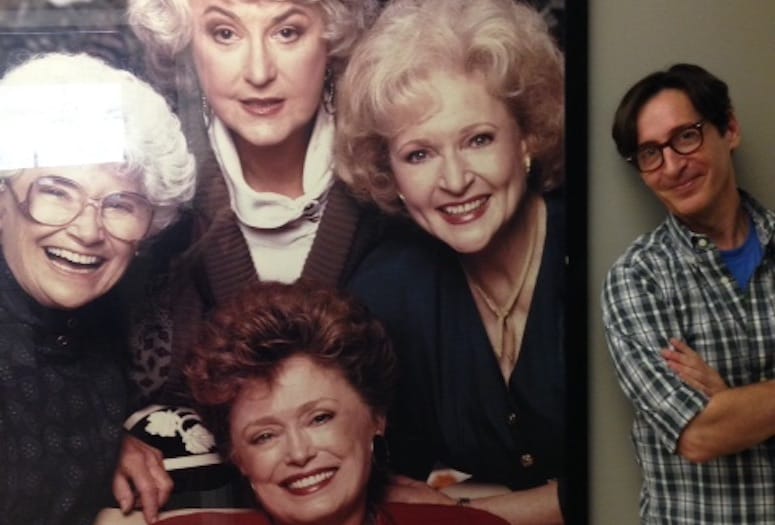
The Golden Girls, one of the most beloved sitcoms of all time, quickly resonated with the LGBTQ+ community due to its stars Betty White, Estelle Getty, Rue McClanahan, and Bea Arthur. But in 1985, when Season 1 began airing, the environment surrounding the making of the show wasn’t so supportive for its gay writers, who started on staff without being out to their co-workers. Stan Zimmerman and his writing partner, James Berg, decided to open up in a local paper.
“Our representatives thought it was a bad idea, but it was a relief for us to finally come out,” Zimmerman tells The Blade. “It’s hard to go to work and be yourself, especially in a job where you have to open your heart and mind and be open to talking about things that you were going through to then create episodes around. Imagine going to work, and you can’t divulge anything. How can you really bring your best talents to the table?”
Starting out the new year, Zimmerman reflects on the show’s 40th anniversary and continued impact. The Blade spoke with Zimmerman about his experience coming out while working on Season 1 of The Golden Girls, dining with Estelle Getty, and writing on Roseanne — notably the Season 6 episode Don’t Ask, Don’t Tell that featured a kiss between two women and prompted outrage from the network. (This interview has been edited and condensed.)
As people have celebrated The Golden Girls turning 40 in 2025, what’s on your mind as you look back?
Of course, tons of memories. But talking about the 40th anniversary, when going into a career, I just wanted a job. And then pretty early on, I landed on the first season of The Golden Girls, and that was more than a job — it changed my life. At the time, you don’t think you’re gonna be talking about it forty years from now, especially when you’re super young like I was. You just want to be able to buy food and pay for living. Then you see that show go through so many renaissances and see new audiences come to it. You know, that first wave was, “Wait, you’re too young to have watched the show. How do you know about it?” And then these waves kept coming and coming. But I feel like right now, this is the biggest wave ever. The show is more popular today than it was back then, and you just see so many generations of people enjoying it and so many age groups. I’ve been involved in television for a long time, and luckily, been involved in a number of big hit shows, yet the thought that one show could attract young kids all the way to older people is pretty wild. With most shows, you only aim for a certain demo.
I have luckily heard so many beautiful stories, especially of LGBTQ+ members sharing their Golden Girls viewings with grandparents. It was such a great way to bond and laugh, and also touch upon a lot of subjects that you probably would not bring up at the dinner table. You’re laughing with them, or you’re seeing characters come out of the closet, and you’re watching these older characters in the show work through them, realizing how important these family members and friends are in their lives.
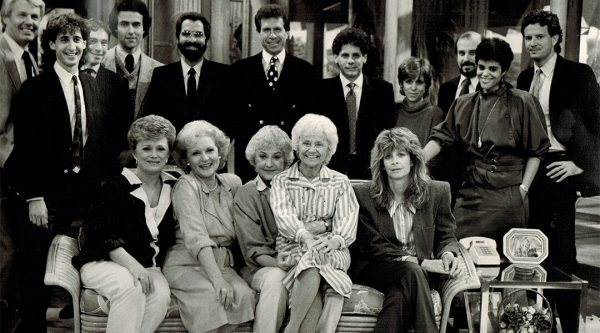
The path to getting into a writers’ room back in 1985 must’ve been so different than what it’s like starting out now. How did you get your foot in the door with a staff job on The Golden Girls?
It’s so funny that you would use the phrase “Foot in the door.” My grandmother must be speaking through you because she always said to me, “Just get your foot through the door, Stanley!” This was after Golden Girls, and I said, “I think my foot’s in the door, I’m trying to shove the rest of my body in.” Obviously, when I started out, there were nights that were just four sitcoms in a row on one network. And for many years, we would have multiple offers to go on a TV series. Now, we’re lucky if there are two or three comedies. There were just more places for us to learn. I’ve always said that Golden Girls was like our college writing 101 classes — how do you write a TV comedy? We were also doing 22-24 episodes a season, so that repetition of learning structure was so fundamental to my growth as a TV writer. Today, writers are lucky if they do six episodes a season. We did a sitcom that we created called Rita Rocks. We did 40 episodes. Then, it was two seasons, and it was OK, a middling success. But if you did 40 episodes of a show now, that would be huge.
You see a few shows now, like Abbott Elementary, that have big season orders and return yearly. But now everything’s a limited series, six or eight episodes. You just don’t get to spend as much time with the characters, which is part of what we love about TV.
And as a writer, we love it because you really get to explore all the different facets of characters and paint them into corners and see how they get out of it. That was really exciting. But also the flip side of that is that at the end of the season, you were exhausted. You had a table read on Monday, and you were filming it on Friday, come hell or high water. You stayed as late as it took.
I gave up a lot of my personal life to work on TV shows. Sometimes, as we get older, we question what could have been, but I loved every moment of it, even the ones that were a little more challenging, like being on Roseanne and dealing with her, and delving into so many interesting storylines. Especially the lesbian kiss episode, which we wrote.
People think of Golden Girls as a very progressive show with a big queer audience, yet, especially in that first season, I know being gay was taboo in the industry. When do you think studio execs started realizing how much the show was resonating with queer people?
I remember going through West Hollywood on a Saturday night when the show was on, and there’d be nobody on the street because they were all in the bars, watching the show on monitors. And I will have to admit, occasionally, I would drop the Golden Girls credit to see if I could get a free martini — that might have worked here and there. But years later, I’d go to gay bars and still see clips of my shows or just meet LGBTQ+ people who knew every word of the scripts. That was really fascinating that it resonated with the audience so much.
And I got to know Estelle Getty, who played Harvey Fierstein’s mother on Broadway in Torch Song Trilogy. She was very friendly with the gay community and would invite me out to dinner, and I got very excited. There’d be 20 gay men, all actors from different companies of Torch Song. She just felt very comfortable being in the company of a gay man.
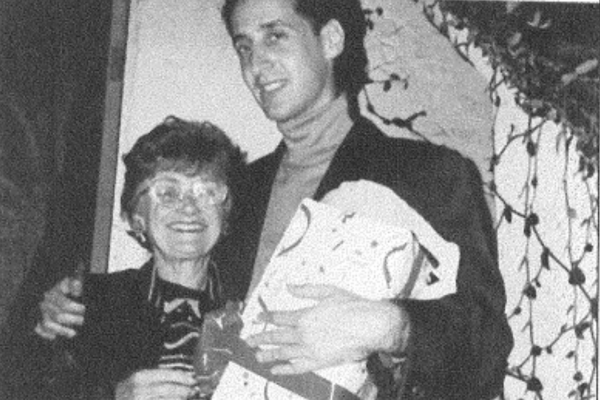
After you came out as gay in the ‘80s, there was a lot of press attention. What was your experience with that?
Back then, it was a big deal if you came out. Obviously, we weren’t household names or actors whose faces were on cameras — those people had to come out on magazine covers. Many of my friends who were actors who were gay or lesbian had to come out in their own way, or else a lot of the tabloids were going to out them anyway. So we got to pick when we wanted to come out, and it was an article in a local paper.
It was a relief, but then for a while, it just opened up the discussions to those writers’ rooms, who were mostly male writers. They just had a zillion questions, all day long. They’d be asking us gay questions, and we’d be like, “Can we write the show and not talk about something gay?” Or we would be at Paramount in an office, and there’d be a window, and a beautiful girl would walk by. The writers would go, “Nothing?” and we’re like, “No.” And then when a hot guy walked by, we’d go to them, “Nothing?” So it got some lively discussions going in the room, which was cool that we got to share that and open up a lot of minds and hearts. Then, turning to a show like Roseanne, Tom Arnold would be running up and down the halls yelling, “Where are my gay guys?” — meaning James Berg and me. And we just kept thinking, “Oh, my God, you can’t say that out loud.” Today, there’d obviously be a lawsuit if you said that.
I wanted to ask you about Roseanne, specifically the Don’t Ask, Don’t Tell episode in Season 6. The network threatened not to air the episode. What was your experience writing that episode and then facing the industry’s reaction?
We knew it would be an interesting episode because Roseanne Barr, on the show and in real life back then, was very open and liberal. So we thought about what story we could give her where we questioned that. If she got kissed by a woman, was she comfortable with that? How did people in her life react? We had no idea that the network would balk at that because it was just a nanosecond of a kiss. ABC flat out said, “We’re not going to let you film it.” Why? What did they think would happen?
You look at the parallels to today. Why do we not want drag queens reading children’s books to kids? Back then, were they afraid that if they saw two women kiss that every woman would turn into a lesbian? It’s so preposterous when you really think about it. We watched a lot of straight entertainment growing up. Did we turn out straight? It’s really about changing their minds and getting people to wake up to what the reality is. There always was and always will be LGBTQ+ people in our society. The sooner we embrace that, I think our society can start to move forward.
You talked about your experience in the writers’ room on The Golden Girls. What was your experience writing on Roseanne, and how was it different?
Golden Girls was terrifying because it was a small writers’ room, but we knew we were writing for four of the best actresses on TV of all time. So there was that pressure. And when the ratings started exploding, I think NBC and the producers knew that they had a piece of gold they had to hold on to. So they were very careful to make sure that every word that went down on set was brilliant. With Roseanne, she had 21 writers on staff, so Tom Arnold and Roseanne Barr, who were married at the time, would bring in their stand-up comedy friends like Norm Macdonald, who had not written for TV at all. We kind of had to teach them how to write for television. Some of those rooms were very intimidating because they were stand-up comedy people who just opened their mouths and were [naturally] funny.
Some rooms I felt really comfortable in and could talk. In other rooms, I just felt so quiet and afraid to speak. Then there was a lot of dysfunction on set when we would have to go down there. Roseanne Barr just created this work environment of fear because we were told, “If she sees the whites of your eyes, you might get fired. So just stand behind the tallest person.” Then, of course, we go and write this lesbian kiss episode. She wanted to know who the hell wrote that, and suddenly, we were thrown at her. But luckily, she just loved it and fought for it. Tom and her got it on ABC, and I will always be thankful to them for that, no matter what her politics are now.
Earlier, we talked about fewer comedies airing on TV in this changing landscape. Across the years you’ve worked in comedy, what have you noticed about the evolution of the sitcom and why there are so few today?
There’s more opportunity in streaming to have really interesting comedies. It’s old now, but I really like a show like Girls by Lena Dunham. But as far as network television, they completely dropped the ball. They got so nervous about offending anybody or taking chances that they became so safe and stale with regurgitated jokes. I would watch or attempt to watch new sitcoms, and it felt like they were using the same writers, and the writers were using the same jokes, and the set-ups for the shows were just the same. When they saw audiences fleeing to streaming, they should’ve taken that opportunity and trusted writers of all ages. There’s no way to predict whether a show is going to be a hit or not — you can do all the testing.
Networks were and are still very afraid of any LGBTQ+ content. We wrote a show on spec called Skirtchasers about a father and his lesbian daughter who both chased women and cheated on those women. Everybody loved the script and had never heard anything like it before, but we were told, “We already have our one gay show this season.”
In recent memory, what are some queer shows or films that you think have done an excellent job with representation? Or just any queer creators or writers you’ve been impressed by.
Actually, last night I watched that Heated Rivalry. It is so freakin’ hot, and it’s so subtle and interesting. I kept thinking I’d be bored, but I just like the pace of it. The actors are good, and it’s obviously very sexy. Then you have the gay sensibility for something like The Gilded Age, which is not a comedy, but I just love the cast. It’s the straightest gayest cast ever! It’s a Broadway wet dream. The show is also produced and directed by Michael Engler, a very good friend of mine who I went to NYU with. I asked him to direct the first play I wrote. I’m so proud watching that show and seeing the twists and turns it’s taking. The White Lotus is a phenomenon on its own, so I do love that. Hacks is really fun — I mean, anything Jean Smart does. We were lucky to have her in the first Brady Bunch Movie.
You mentioned your first play, and most recently, you’ve been working in theater and doing advocacy work. What inspired that?
Especially after COVID, I just love the idea of being in the theater with live people having this experience that is so unique to that one performance — it will never, ever be the same. Luckily, my TV career has enabled me to be able to go off and do theater. I created the play Right Before I Go, which is my suicide awareness play, using real suicide notes and also telling the story of a very close friend of mine who died by suicide 15 years ago. I’ve been traveling the United States with it, and made my off-Broadway acting and playwriting debut this past September, which was Suicide Prevention Month. It had a lot of queer actors in it: Wilson Cruz, Maulik Pancholy, Danny Pintauro, and then gay icons like Wendy Malik from Hot in Cleveland and Christine Taylor from The Brady Bunch Movie. That was really impactful, and I feel needed. In New York, audiences kept saying during our talkback that there’s no other theater like this that gives you a safe space to watch a show like this and then talk about it with a local mental health professional on stage.
When you get involved in projects, it takes so much of your life. I want to go out and either make people laugh, cry, but be moved. And that’s very exciting to sit in the theater and realize they’re having these emotions because of something that I created.
a&e features
Looking back at the 10 biggest A&E stories of 2025
‘Wicked,’ Lady Gaga’s new era, ‘Sexy’ Bailey and more
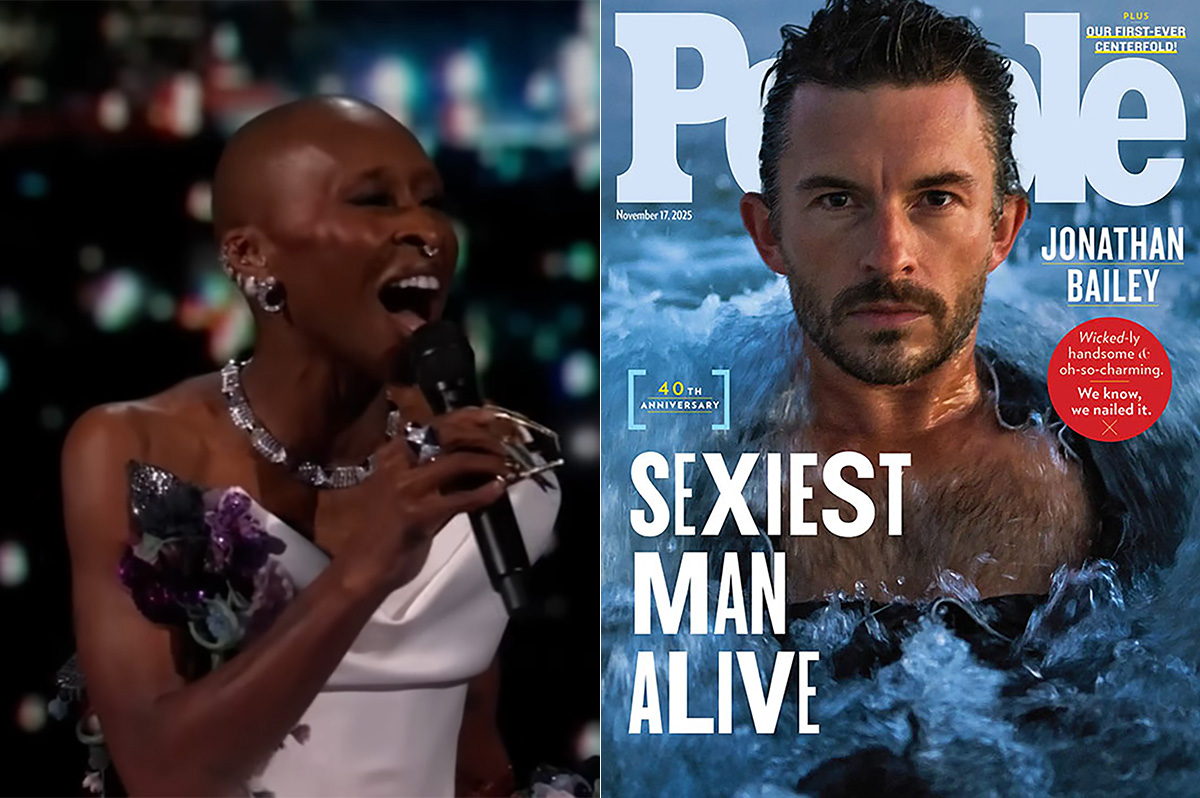
Although 2025 was a year marked by countless attacks on trans rights and political setbacks, the year also saw brilliant queer artists continuing to create art. From Cannes and Sundance Award winners now vying for Oscar consideration to pop icons entering new stages of their careers, queer people persevered to tell their stories through different media.
With the state of the world so uncertain, perhaps there’s no more vital time to celebrate our wins, as seen through some of this year’s top pop culture moments. While there’s no collection of 10 stories that fully encompass “the most important” news, here are some events that got the gays going:
10. ‘Mysterious Gaze of the Flamingo’ wins big at Cannes
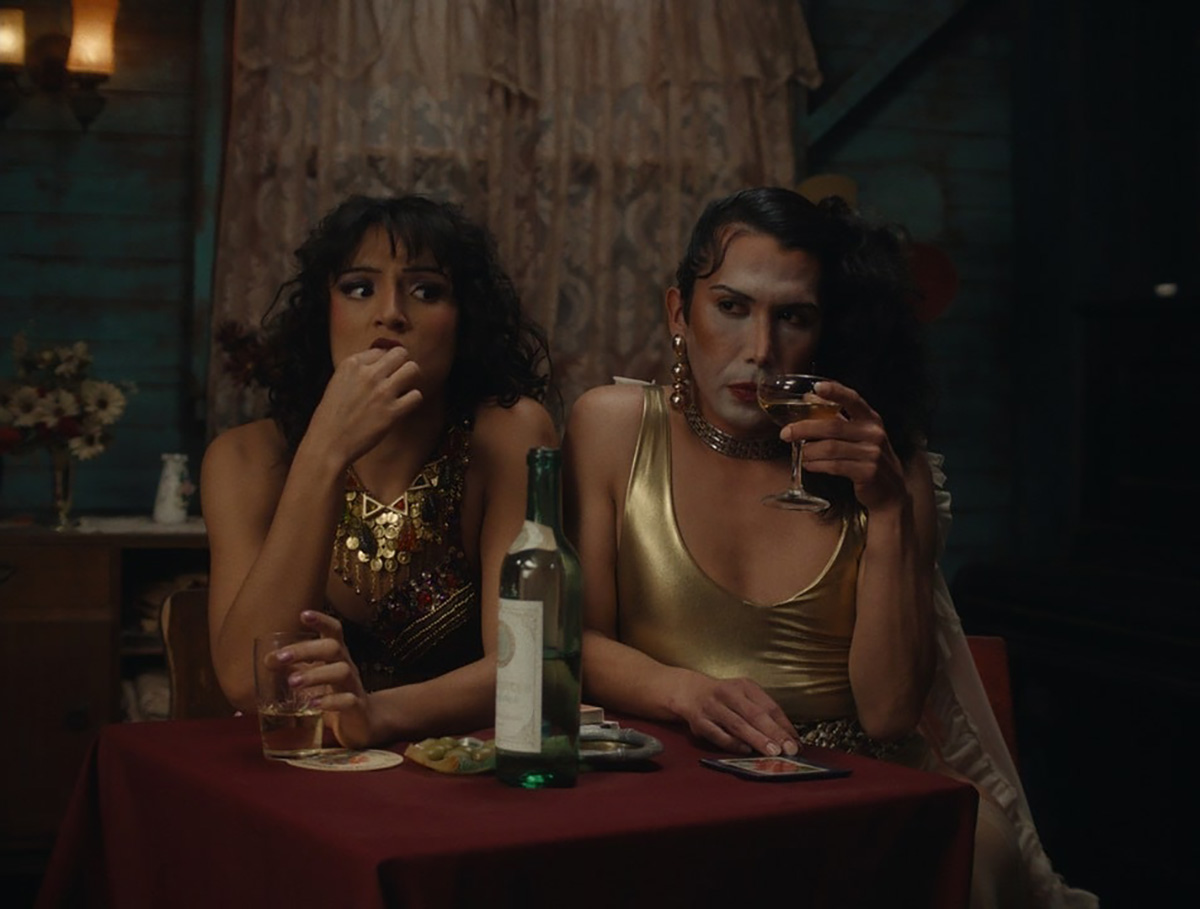
The Cannes Film Festival has become a crucial start for films hoping to make their way to the Oscars, and first-time director Diego Céspedes won the top Un Certain Regard prize for his intimate western “The Mysterious Gaze of the Flamingo.” The film is set in the ‘80s and is intended as an allegory for the AIDS epidemic. Seeing a film that unpacks vital queer history win one of the most coveted awards at Cannes has been a huge point of pride in the independent filmmaking community.
Since the film bowed at Cannes, it has been selected as Chile’s Oscar entry in the Best International Feature race. Speaking with The Blade during the film’s AFI Fest run in October, Céspedes said: At first, I was kind of scared to have this campaign position in the times that we’re living [in] here. But at the same time, I think the Oscars mean a huge platform — a huge platform for art and politics.”
9. ‘The Last of Us’ returns for an even gayer season 2
While the first season of The Last of Us gave us one of TV’s most heartbreaking queer love stories in the episode “Long, Long Time,” Season 2 doubled down on its commitment to queer storytelling with the blossoming relationship between Ellie (Bella Ramsey) and Dina (Isabela Merced). The show expanded on the pair’s relationship in the original video game, making it perhaps the central dynamic to the entire season. That unfortunately came with more homophobic backlash on the internet, but those who checked out all the episodes saw a tender relationship form amid the show’s post-apocalyptic, often violent backdrop. For their performance, Ramsey was once again nominated for an Emmy, but Merced deserved just as much awards attention.
8. ‘Emilia Pérez’ sparks controversy
Jacques Audiard’s genre-bending trans musical “Emilia Pérez” proved to be an awards season juggernaut this time last year, winning the Golden Globe for Best Musical/Comedy. But when the lead star Karla Sofia Gascón’s racist, sexist, and homophobic old tweets resurfaced, the film’s Oscar campaign became a tough sell, especially after Netflix had tried so hard to sell Emilia Pérez as the “progressive” film to vote for. Mind you, the film had already received significant backlash from LGBTQ+ audiences and the Mexican community for its stereotypical and reductive portrayals, but the Gascón controversy made what was originally just social media backlash impossible to ignore. The only person who seemed to come out of the whole debacle unscathed was Zoe Saldaña, who won the Oscar for Best Supporting Actress over Ariana Grande.
7. ‘Sorry, Baby’ establishes Eva Victor as major talent
Back in January at the Sundance Film Festival, Eva Victor (known by many for her brand of sketch comedy) premiered their directorial debut “Sorry, Baby” to rave reviews, even winning the Waldo Salt Screening Award. Victor shadowed Jane Schoenbrun on the set of “I Saw the TV Glow,” and seeing Victor come into their own and establish such a strong voice immediately made them one of independent cinema’s most exciting new voices. A memorable scene in the film sees the main character, Agnes (played by Victor), struggling to check a box for male or female, just one example of how naturally queerness is woven into the fabric of the story.
Most recently, Victor was nominated for a Golden Globe for her performance in the film, and she’s represented in a category alongside Jennifer Lawrence (“Die My Love”), Jessie Buckley (“Hamnet”), Julia Roberts (“After the Hunt”), Renate Reinsve (“Sentimental Value”) and Tessa Thompson (“Hedda”). The film also received four Independent Spirit Award nominations overall.
6. Paul Reubens comes out in posthumous doc
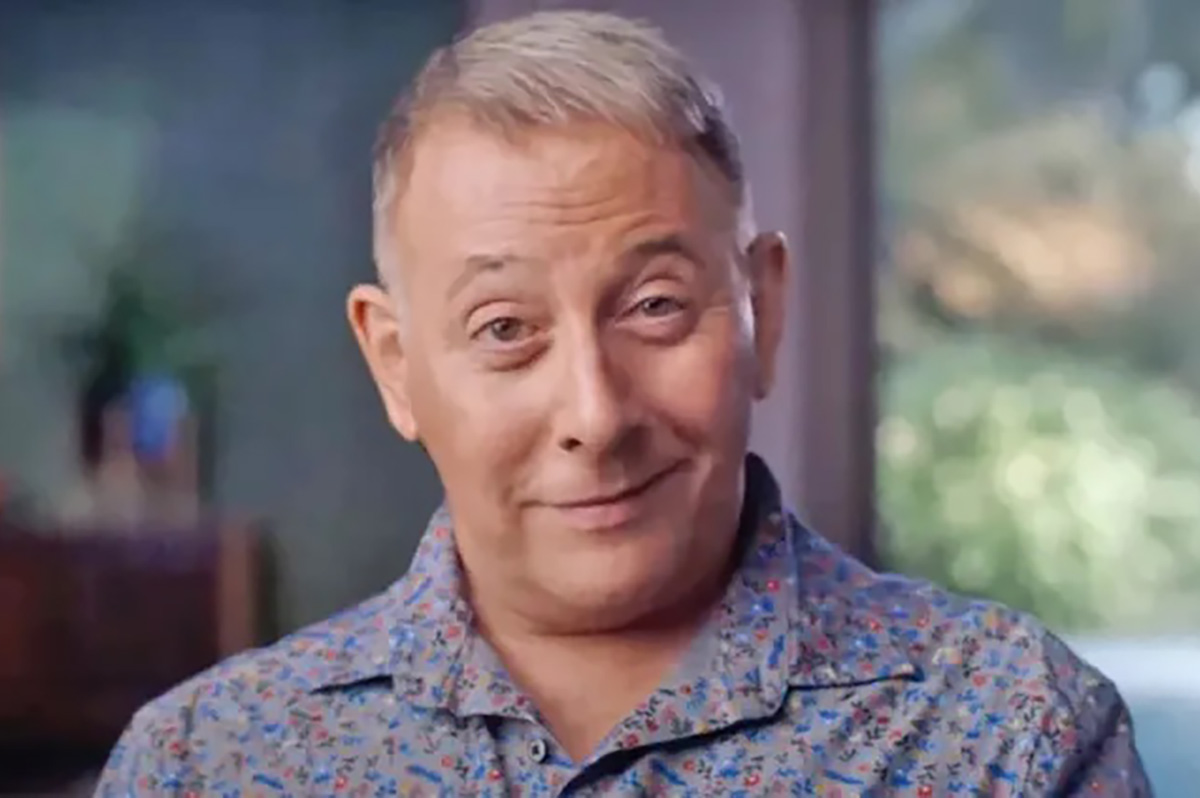
While Paul Reubens never publicly came out as gay before passing away in 2023, the two-part documentary “Pee-wee as Himself” premiered back in May on HBO Max, giving the legendary comedian a chance to posthumously open up to the world. Directed by Matt Wolf, the documentary explores how Reubens found his alter ego Pee-Wee Herman and why he kept his private life private.
The documentary won an Emmy in the Outstanding Documentary or Nonfiction Special category and remains one of the most critically acclaimed titles of the year with a 100% Rotten Tomatoes score. Also worth noting, the National Geographic documentary Sally told the posthumous coming out story of Sally Ride through the help of her long-time partner, Tam O’Shaughnessy.
5. Lady Gaga releases ‘Mayhem’
Lady Gaga entered a new phase of her musical career with the release of Mayhem, her seventh album to date. From the frenzy-inducing pop hit Abracadabra to the memorable Bruno Mars duet featured on “Die With a Smile,” seeing Gaga return to her roots and make an album for the most die-hard of fans was especially rewarding after the underwhelming film releases of “House of Gucci” and “Joker: Folie à Deux.” Gaga has been touring with The Mayhem Ball since July, her first arena tour since 2018. She even extended her tour into 2026 with more North American dates, so the party isn’t stopping anytime soon. And Gaga is even set to make an appearance next May in “The Devil Wears Prada 2.”
4. Cynthia Erivo, Ariana Grande perform at the Oscars
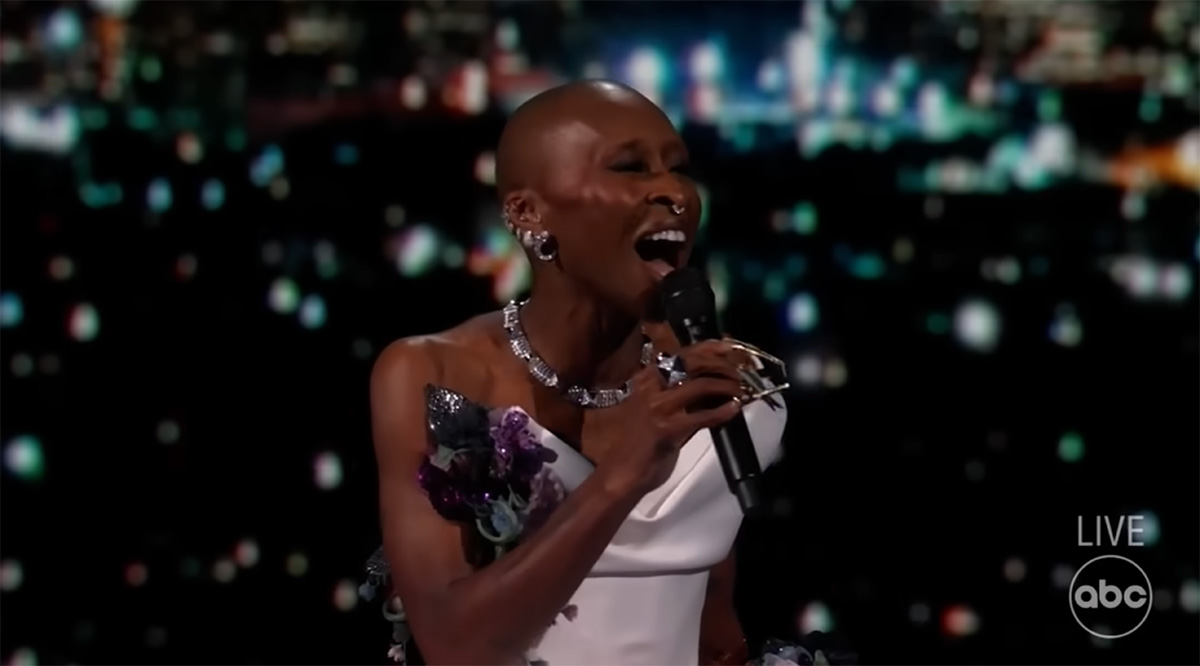
While “Wicked: For Good” didn’t quite reach the heights of the first film, we will forever have Cynthia Erivo and Ariana Grande’s breathtaking live performance that opened the 97th Academy Awards. The pair sang a rendition of “Over the Rainbow,” “Home,” and “Defying Gravity,” paying proper homage to the original 1939 “Wizard of Oz.” Even non-Wicked fans can’t deny how magical and brilliantly staged this performance was. With both Erivo and Grande up for acting Oscars last year, they’re hoping to repeat success and make history with consecutive nominations. Either way, let’s hope there’s another live performance in the making, especially with two new original songs (The Girl in the Bubble and No Place Like Home) in the mix.
3. Indya Moore speaks out against Ryan Murphy
Indya Moore has consistently used social media as a platform for activism, and in September, posted a 30-minute Instagram live speaking out against “Pose” co-creator Ryan Murphy. Moore claimed that Murphy wasn’t being a true activist for trans people. “Ryan Murphy, we need you to do more. You need to address the racism, the violence, and the targeting of people on your productions, Ryan Murphy. You do need to make sure trans people are paid equally. Yes, Janet did the right thing,” Moore said. Murphy was also back in the headlines this year for the critically panned “All’s Fair” and the controversial “Monster: The Ed Gein Story” starring Laurie Metcalf and Charlie Hunnam.
2. Cole Escola wins Tony for Best Leading Actor
Few pop culture moments this year brought us together more than Cole Escola winning a Tony award for “Oh, Mary!” the Broadway show they created, wrote and starred in (we love a triple threat!) Escola made history by becoming the first nonbinary person to win a Tony in the leading actor category, and seeing them excitedly rush to the stage wearing a Bernadette Peters-inspired gown instantly became a viral social media moment.
The cherry on top of Escola’s major moment is the recent news that they are writing a Miss Piggy movie with Jennifer Lawrence and Emma Stone producing — news that also broke the internet for the better. We cannot wait!
1. Jonathan Bailey makes gay history as ‘Sexiest Man Alive’
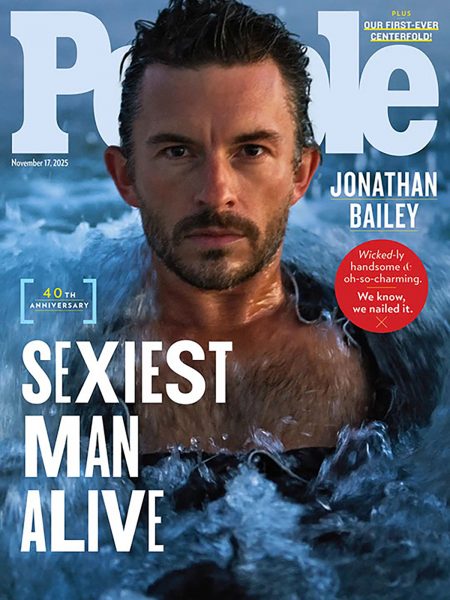
The same year as his on-screen roles in blockbusters “Jurassic World Rebirth” and “Wicked: For Good,” Jonathan Bailey made history as the first openly gay man to be named People magazine’s “Sexiest Man Alive.” The fact that it took 40 years for an openly gay man to earn the title is a signifier of how far we still have to go with queer representation, and seeing Bailey celebrated is just one small step in the right direction.
“There’s so many people that want to do brilliant stuff who feel like they can’t,” he told PEOPLE, “and I know the LGBT sector is under immense threat at the moment. So it’s been amazing to meet people who have the expertise and see potential that I could have only dreamed of.” In 2024, Bailey founded the charity titled The Shameless Fund, which raises money for LGBTQ+ organizations.
a&e features
Queer highlights of the 2026 Critics Choice Awards: Aunt Gladys, that ‘Heated Rivalry’ shoutout and more
Amy Madigan’s win in the supporting actress category puts her in serious contention to win the Oscar for ‘Weapons’
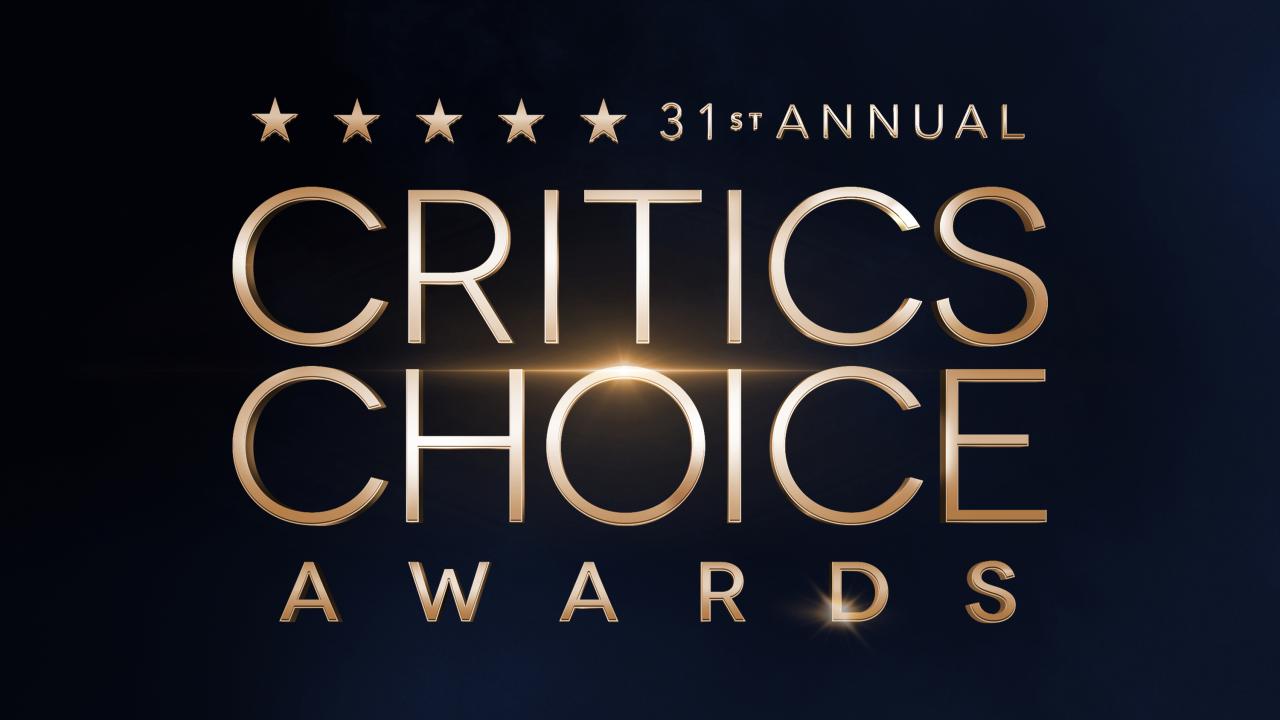
From Chelsea Handler shouting out Heated Rivalry in her opening monologue to Amy Madigan proving that horror performances can (and should) be taken seriously, the Critics Choice Awards provided plenty of iconic moments for queer movie fans to celebrate on the long road to Oscar night.
Handler kicked off the ceremony by recapping the biggest moments in pop culture last year, from Wicked: For Good to Sinners. She also made room to joke about the surprise hit TV sensation on everyone’s minds: “Shoutout to Heated Rivalry. Everyone loves it! Gay men love it, women love it, straight men who say they aren’t gay but work out at Equinox love it!”
The back-to-back wins for Jacob Elordi in Frankenstein and Amy Madigan in Weapons are notable, given the horror bias that awards voters typically have. Aunt Gladys instantly became a pop culture phenomenon within the LGBTQ+ community when Zach Cregger’s hit horror comedy released in August, but the thought that Madigan could be a serious awards contender for such a fun, out-there performance seemed improbable to most months ago. Now, considering the sheer amount of critics’ attention she’s received over the past month, there’s no denying she’s in the running for the Oscar.
“I really wasn’t expecting all of this because I thought people would like the movie, and I thought people would dig Gladys, but you love Gladys! I mean, it’s crazy,” Madigan said during her acceptance speech. “I get [sent] makeup tutorials and paintings. I even got one weird thing about how she’s a sex icon also, which I didn’t go too deep into that one.”
Over on the TV side, Rhea Seehorn won in the incredibly competitive best actress in a drama series category for her acclaimed performance as Carol in Pluribus, beating out the likes of Emmy winner Britt Lower for Severance, Carrie Coon for The White Lotus, and Bella Ramsey for The Last of Us. Pluribus, which was created by Breaking Bad’s showrunner Vince Gilligan, has been celebrated by audiences for its rich exploration of queer trauma and conversion therapy.
Jean Smart was Hack’s only win of the night, as Hannah Einbinder couldn’t repeat her Emmy victory in the supporting actress in a comedy series category against Janelle James, who nabbed a trophy for Abbott Elementary. Hacks lost the best comedy series award to The Studio, as it did at the Emmys in September. And in the limited series category, Erin Doherty repeated her Emmy success in supporting actress, joining in yet another Adolescence awards sweep.
As Oscar fans speculate on what these Critics Choice wins mean for future ceremonies, we have next week’s Golden Globes ceremony to look forward to on Jan. 11.
a&e features
Indya Moore on history-making Gotham Award nomination and speaking out on social media: “It has complicated my access to work”
The Pose star also recalls first stepping into the role of Angel during Trump’s presidency
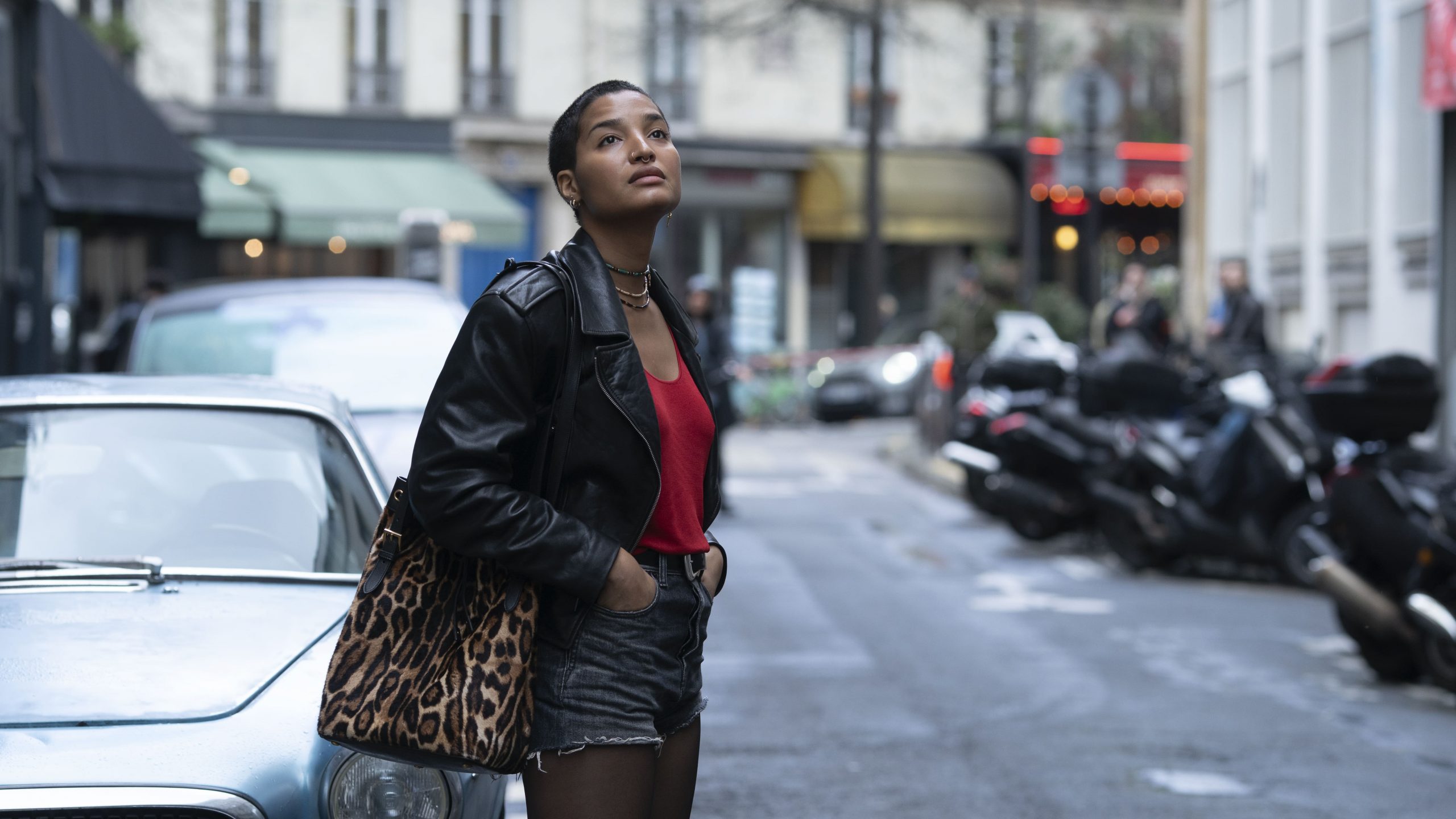
Since their breakthrough role in Ryan Murphy’s Pose, Indya Moore has been no stranger to making history both on the big screen and off it. Most recently, they became the first openly trans or non-binary actor to be nominated at the Gotham Awards in the lead or supporting categories.
“It happened because I had the opportunity,” Moore says of being recognized for their work in Jim Jarmusch’s newest indie, Father Mother Sister Brother. “It’s hard for me to receive the award of a nomination, but I really do appreciate it. It makes me feel like I’m growing in the right direction. It’s a very positive nod to keep working the way I did for this film.”
Jarmusch’s Father Mother Sister Brother, which won the top award at this year’s Venice Film Festival and is being distributed in the U.S. by MUBI (who released The Substance last year), is divided into three distinct chapters, exploring dysfunctional family dynamics. Moore appears in the last chapter, titled Sister Brother, alongside Luka Sabbat. The two play twins who reunite following the death of their parents, and must figure out how to move forward in their lives. The previous chapters feature Cate Blanchett, Adam Driver, Charlotte Rampling, Tom Waits, and Vicky Krieps.
Ahead of the film’s Christmas Eve release, Moore spoke with The Blade about working with Jarmusch for the first time on Father Mother Sister Brother, making history at the Gotham Awards, and why they remain active on social media and speak out about worldwide issues despite it complicating their “access to work.” This interview has been edited and condensed.
This film is your first with Jim Jarmusch. I’m curious how familiar you were with his work before, and how you got involved with the film?
I received an email about it, and then we spoke about it on the phone. It was really beautiful to be imagined as Skye and envisioned in the life of a character who is experiencing an aspect of being alive and being human that isn’t about persecution or hurt. I thought that was beautiful. These are the sorts of tones that I appreciate working with, the depths I always hope to find in this work. And I found that with Jim. I’m grateful it was him and that he chose me. I don’t know if it was even a choice for him because the way that he describes it is that these characters existed in his mind as me and Luka [Sabbat].
You appear after the first two chapters (titled Father and Mother), and the relationships between the characters there are much more strained and awkward, often comedically so. I love the tenderness Skye has with Billy in that final chapter. Could you speak to how the sibling relationship ties thematically into the film overall?
There is an interesting dynamic where it seems like the characters are different versions of each other — the parents and the siblings. And in each vignette, Skye is probably a mixture of all the previous siblings. And Billy is like the previous brother in a way. And also, the masking that the other characters seem to do is why the relationships all feel strained. They’re all hiding from each other, but they all love each other at the same time. They still all want to be there with each other, and it’s a really beautiful tension.
In the relationship between my character and Billy, there is more comfort in being together and seeing each other again — a gleefulness and joy that comes with being reunited. But the circumstances it happens with are overwhelmed with grief. Their relationship doesn’t seem that they’re masking. Like we see that Billy is experimenting with mushrooms, and so is Skye. The very nature of these medicines is to unmask. And so it’s a different perspective on what’s possible when people love and accept each other for who they are.
That’s really beautifully said. I don’t know if this is an explicitly queer film, but I think queer people might find unique connections with the dysfunctional family dynamics and how difficult that can be. As an openly queer person, are there ways you were able to specifically tap into some of the themes?
I think it’s very reflective of family dysfunction. Whether your kid is queer or just different in some funky, wacky way — kind of like Vicky Krieps’ character was. There’s always something about a person that others justify being cruel to and dominating, especially in sibling relationships. It’s really messed up. When we don’t learn to do that as kids with each other as siblings, we do that to each other as adults and become really oppressive people. We don’t understand other people’s autonomy and dignity, and it turns into all kinds of mistreatment and potentially persecution if you become somebody in a position of power and authority. Family is a really powerful opportunity for us to figure out who we’re going to be out in the world. We’re born to strangers, we’re born to random people, and end up having random siblings.
When you request that someone present their authentic self, you trust and believe them when they do. That should be synonymous with believing people when they tell you they’re queer, or they have a disability that they need to make boundaries around. Or if they’re a person of color, they come from a history of intergenerational trauma and persecution and genocide. How do you respond to that? Or someone else who may be part of a people who are being occupied and colonized right now. Without all these fancy political words, how do we empathize with people who are trying to survive cruelty? How do we find the wisdom and incentive to love people when you get nothing back in return for doing it? That is what the advancement and hard work actually is. In Father Mother Sister Brother, the narrative doesn’t get that deep, but it evokes that train of thought. It evokes that framework of thinking about relationships, and I appreciate the film for doing that.

This film won the Golden Lion at this year’s Venice Film Festival, and you recently made history at the Gotham Awards as the first openly trans nominee in the supporting or lead acting categories (Jack Haven was nominated for I Saw the TV Glow before they came out). What does that recognition mean to you?
Oh, well, that’s news to me. I didn’t know that I was the first trans nominee. I appreciate that acknowledgement. It happened because I had the opportunity. I don’t know how to think about it. It’s hard for me to receive the nomination, but I really do appreciate it. It makes me feel like I’m growing in the right direction. It’s a very positive nod to keep working the way I did for this film.
This year, you were also featured in Ponyboi, a great indie film that was notable for having a lead intersex character. What was your experience on that film? I wish it were getting more attention.
River Gallo is one of the most beloved people in my life. I love them so much, and I’m so proud. They wrote the film, sent it out, and got it made. That is phenomenal to me. They’re so brilliant, so loving, kind, generous, funny. Funny, oh my god! I had so much fun working with them. It was really fun to step into the complexity of my character, Charlie. She brought a meanness that does exist in some subcultures of the trans community. I loved supporting River and telling this story.
Talking about the state of the queer community and the world we’re living in, you have used social media as a real platform. Not just with what’s happening in the U.S., but Palestine and so many other issues. How do you approach using social media, especially as you’re getting more accolades and awards attention?
I know that it has complicated my access to work. It’s not incentivizing to go against the grain of this political suffocation that is taking everybody — children, women, trans and queer people, brown people, indigenous folks, and so many folks all over the world. There is an ushering in of some new world, some order that seems to be leaving behind a lot of suffering. Insurmountable suffering that we’ve never seen before. Nothing good comes out of that. Nothing good comes out of that ever. Nothing good comes out of separating people’s families. Nothing good comes out of lying to justify the exercise of power to do that. To cause suffering and terror, and then to call people who ask and demand for it to stop “terrorists.” I never imagined that we would live in a time where unarmed civilians are being called “terrorists” and are not allowed to fight against people who are hurting them, who are taking their homes and shelter and land, who are refusing to give up their only homes. Just for refusing to go homeless so that other people can have multiple homes and more wealth. What the fuck is that shit? Excuse my language. In the name of God, what are we looking at?
I stepped into the role of Angel in Pose during Donald Trump’s presidency [in 2018]. I have not had an opportunity to just be an artist who isn’t also having to take the extra step in engaging my audience that is unaffected with my audience that is. That is what my work has been. That is what I think the role of an artist is — to engage people with other people through your work. However, that instrument manifests as, be it a voice, a platform, or a creative medium. Being trans, being a person of color, and also feeling the weight of responsibility is deep work. And also being human. I have to use my platform to be a reminder of principles of how to treat each other, and also make sure that I’m maintaining that in my own life. And that’s hard. I’ve made mistakes too. When you have a platform, people romanticize you as a better version of themselves. They idolize you. So I’m constantly telling people to stop calling me a goddess. I’m not a queen. I’m a person just like you.
Truly, empathy is evolutionary, and we cannot replace it with machines. It’s not going to work, and we keep trying. And that’s why I’m trying to use my platform the best way that I can. I haven’t been as creative in my messaging; I’ve just been very direct and straight to it. I’m not even necessarily trying to be the voice for everything, but also sharing other people’s. But it’s exhausting. And now to be under the pressure of the anti-trans and anti-free speech stuff that is happening. If you don’t have a platform, you have a life. And that’s enough.
-
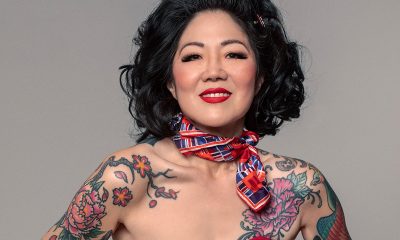
 Events4 days ago
Events4 days agoMargaret Cho joins headliner lineup for Lambda Legal’s queer comedy night
-

 Television4 days ago
Television4 days agoNetflix’s ‘The Boyfriend’ is more than a dating show
-

 Italy5 days ago
Italy5 days ago44 openly LGBTQ+ athletes to compete in Milan Cortina Winter Olympics
-
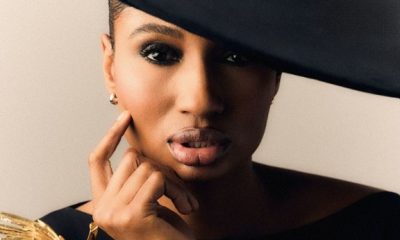
 a&e features3 days ago
a&e features3 days agoAngel McCoughtry, “Renaissance Woman”
-

 Los Angeles1 day ago
Los Angeles1 day agoProject Angel Food is now able to feed 10,000 people daily with expanded building
-
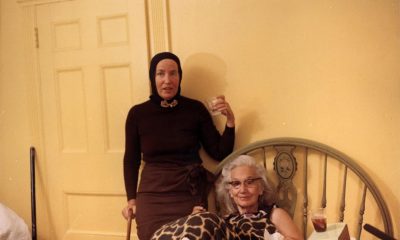
 Movies4 days ago
Movies4 days ago50 years later, it’s still worth a return trip to ‘Grey Gardens’
-
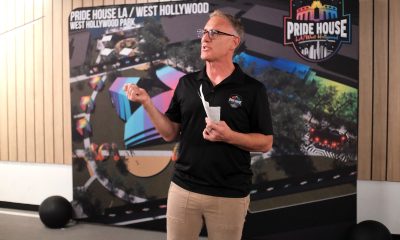
 Sports2 days ago
Sports2 days agoMichael Ferrera is paving a path of safety and liberation for queer athletes
-

 Sports2 days ago
Sports2 days agoBlade, Pride House LA announce 2028 Olympics partnership
-

 Arts & Entertainment2 days ago
Arts & Entertainment2 days ago2026 Best of LGBTQ LA Readers’ Choice Award Nominations
-
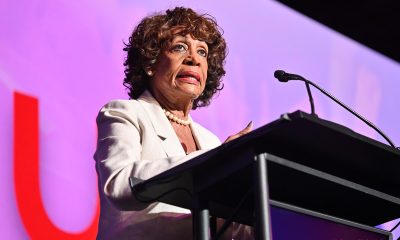
 AIDS and HIV1 day ago
AIDS and HIV1 day agoCongresswoman Maxine Waters introduces new resolution for National Black HIV/AIDS Awareness Day

